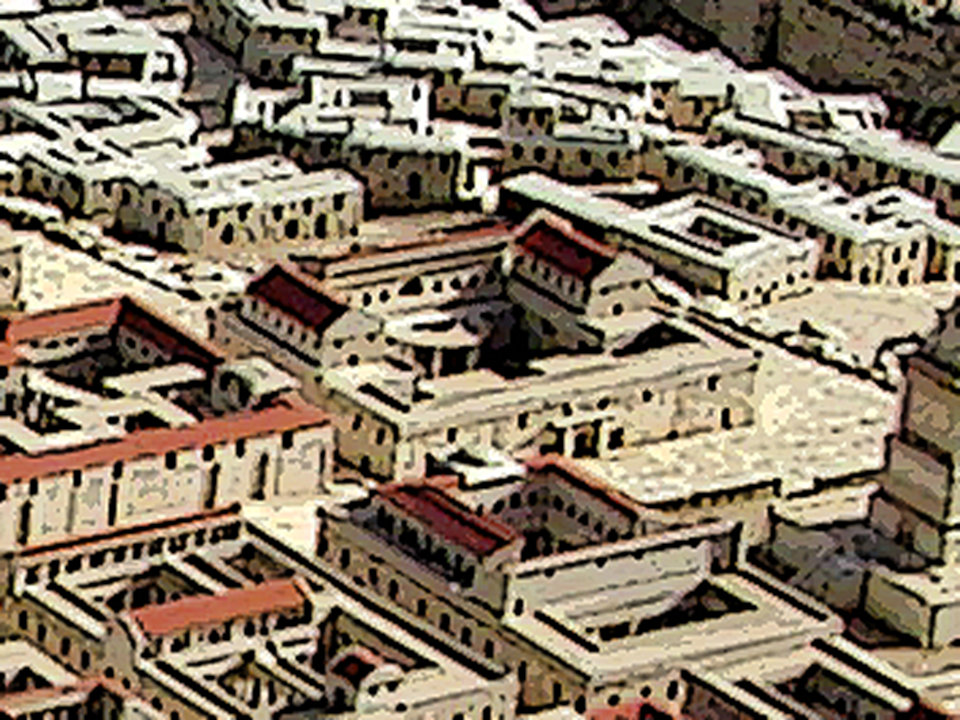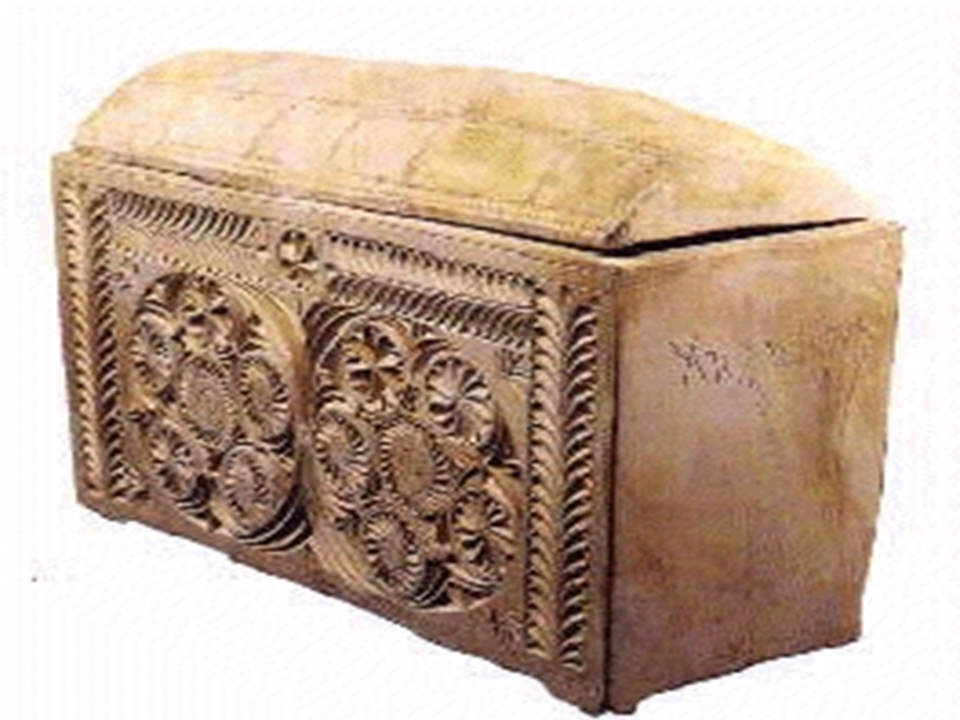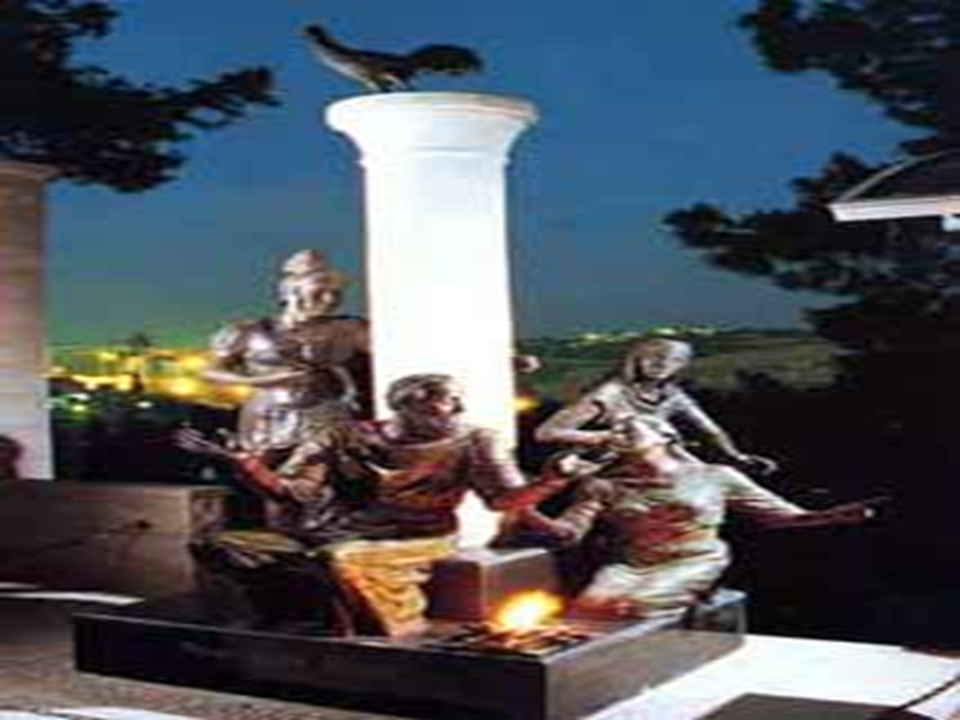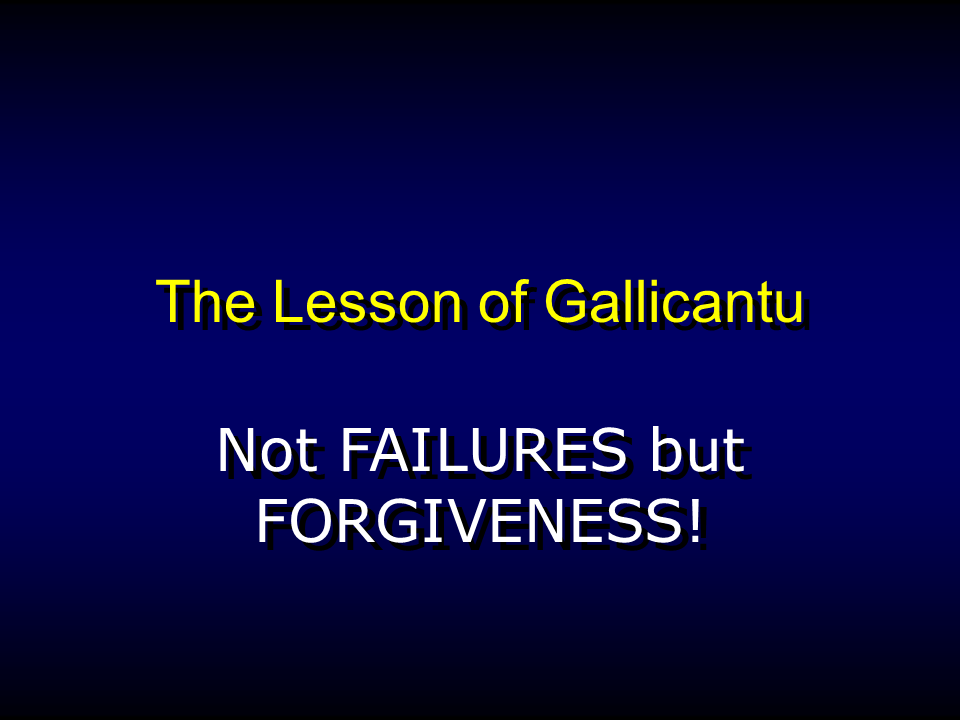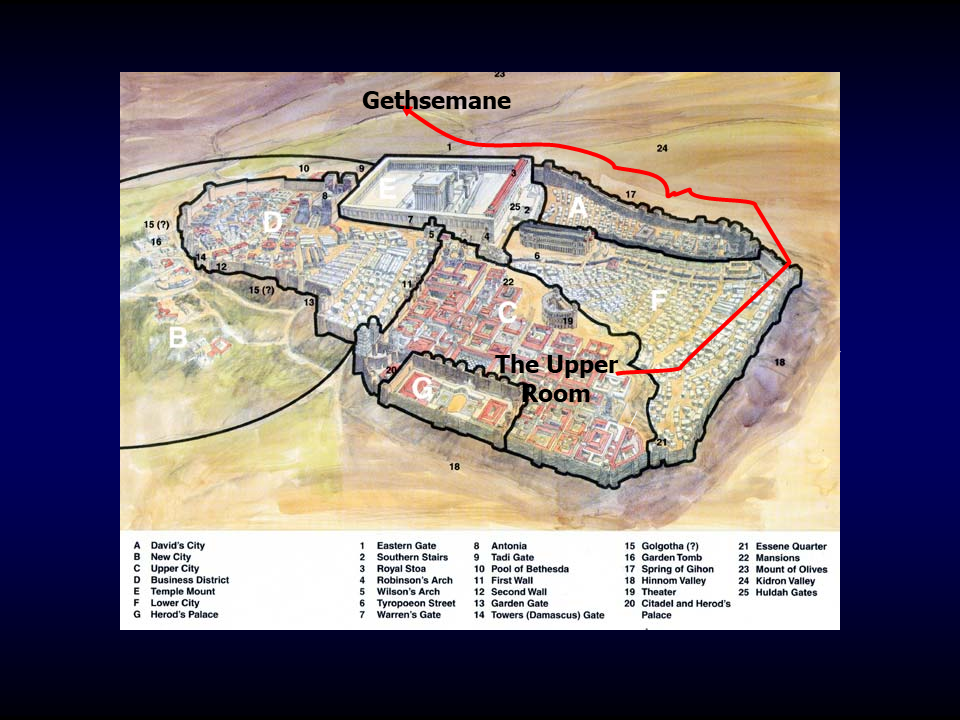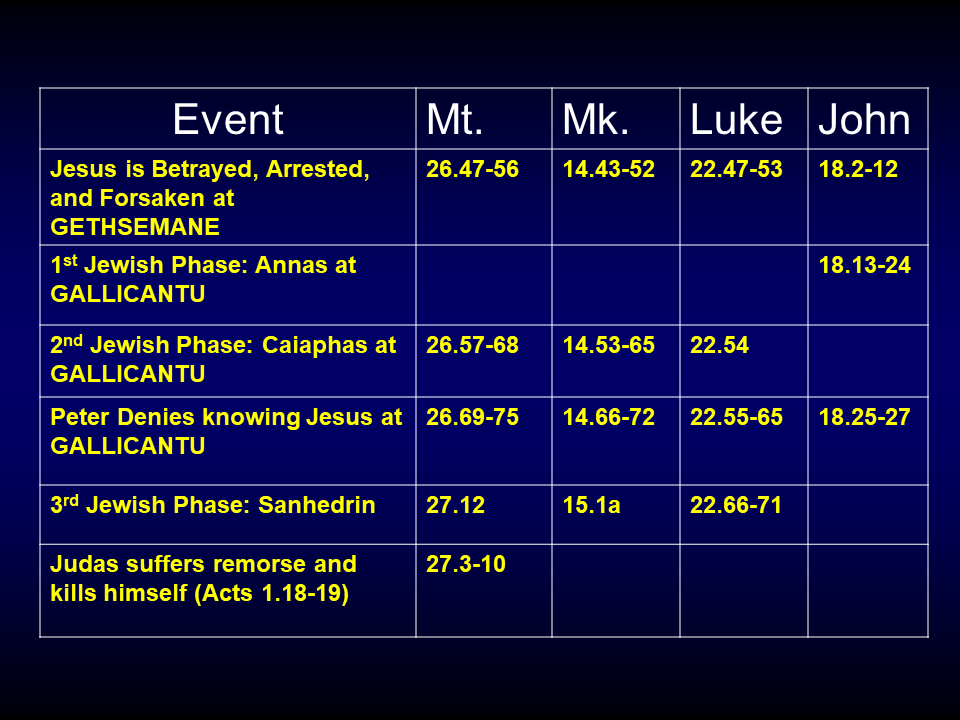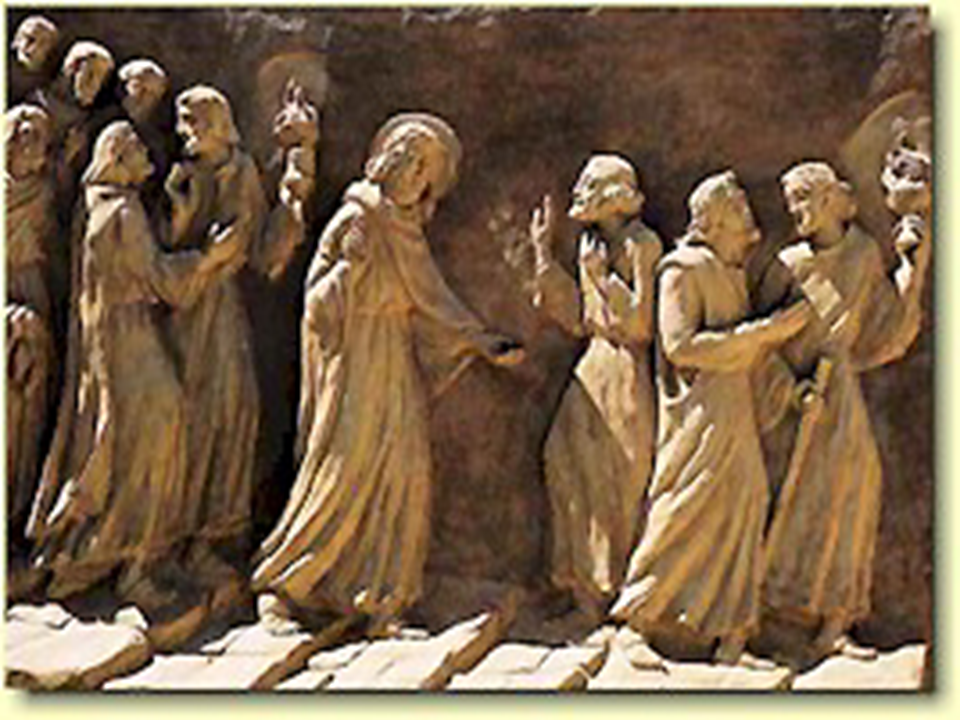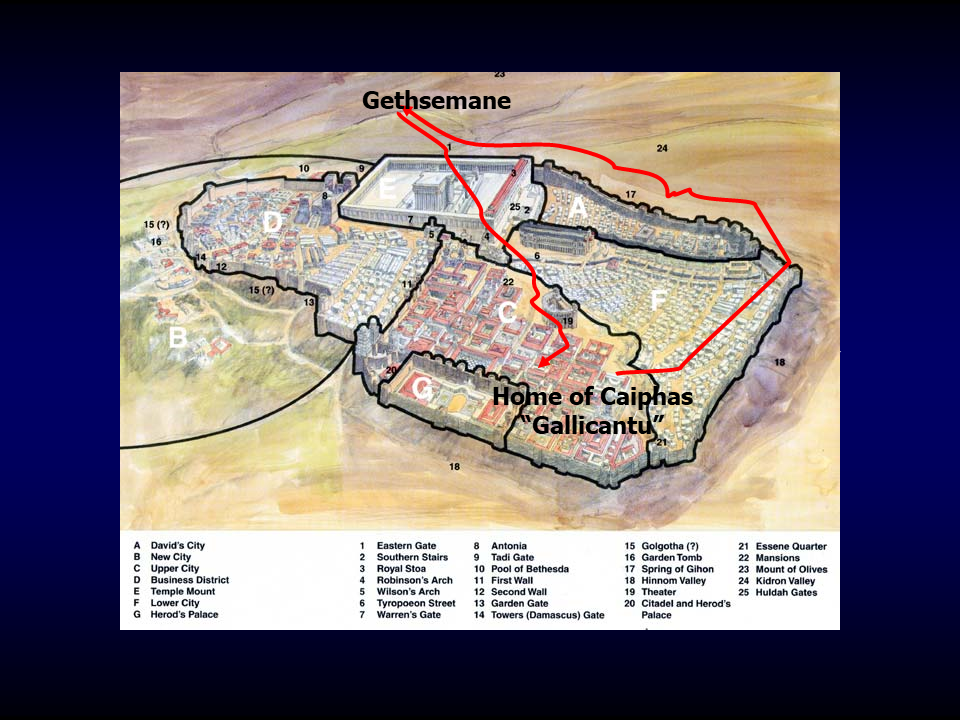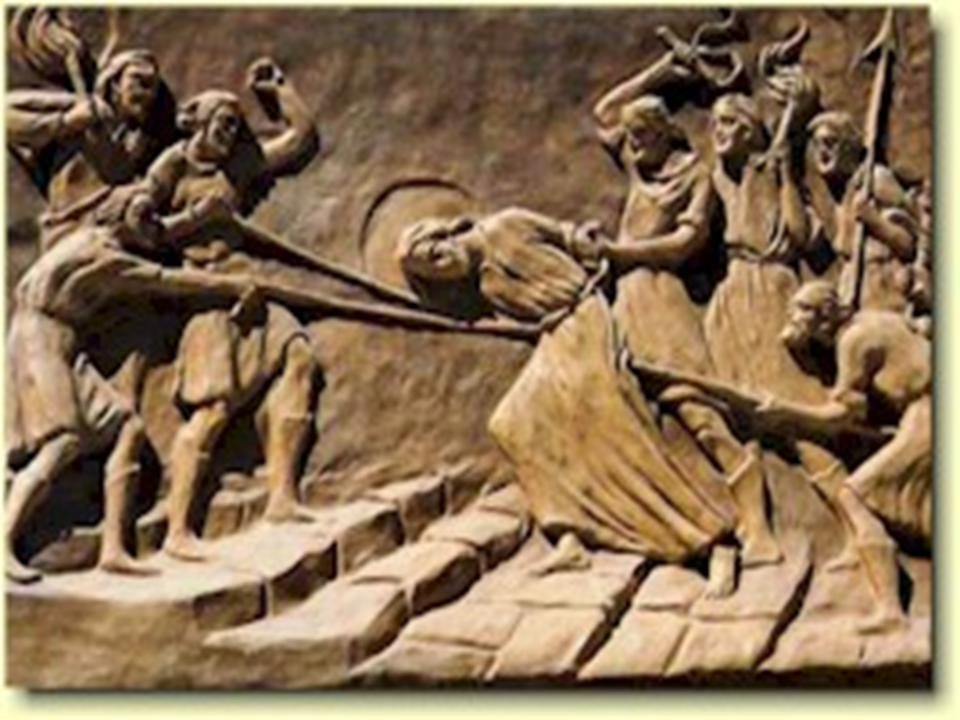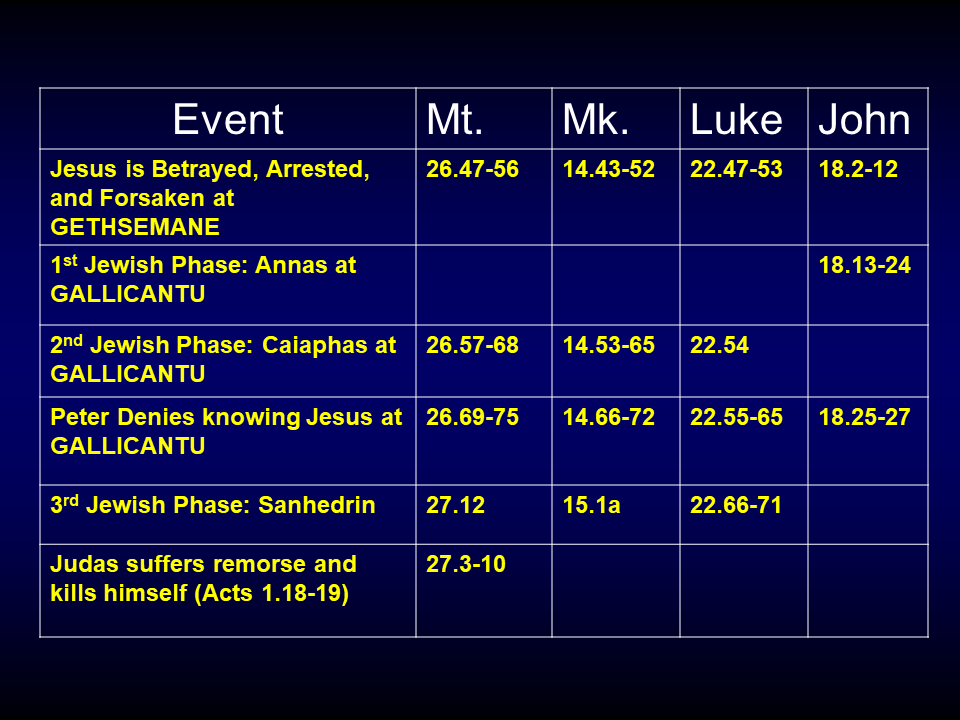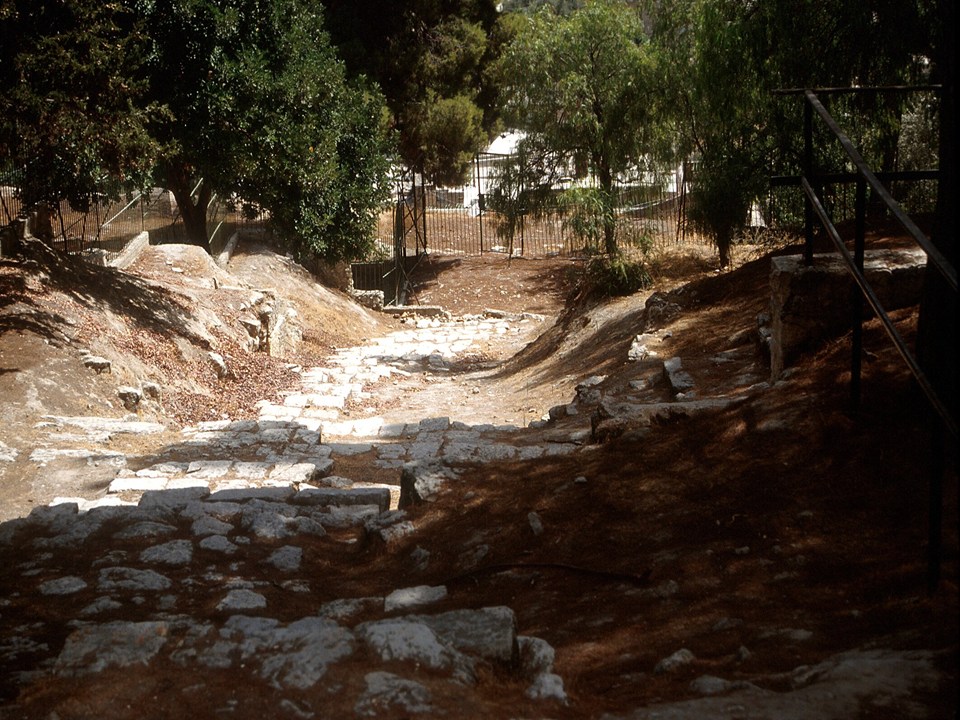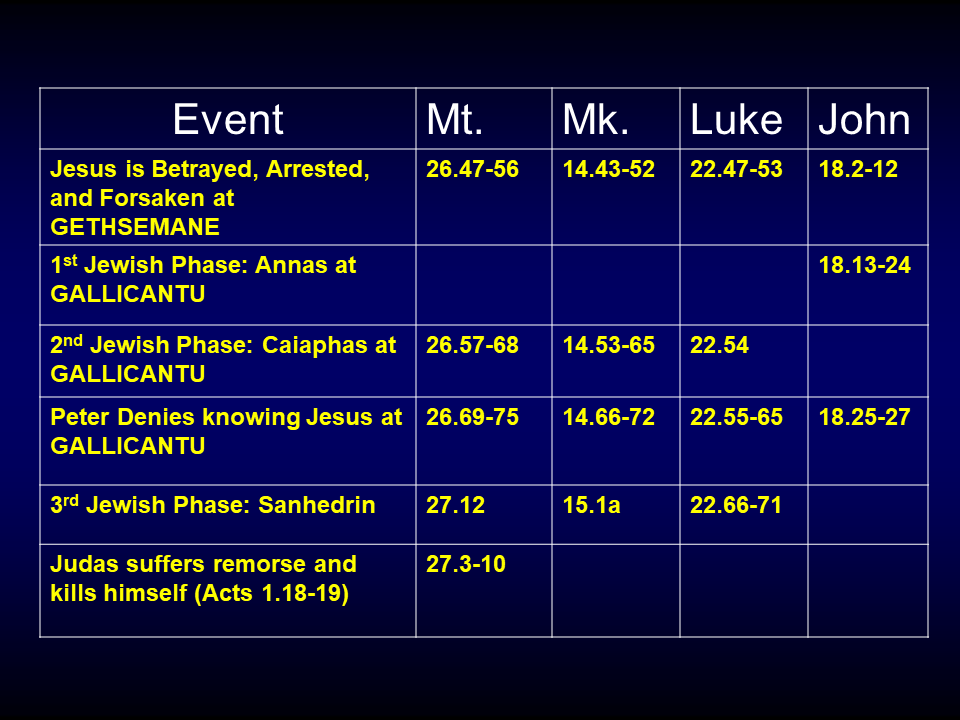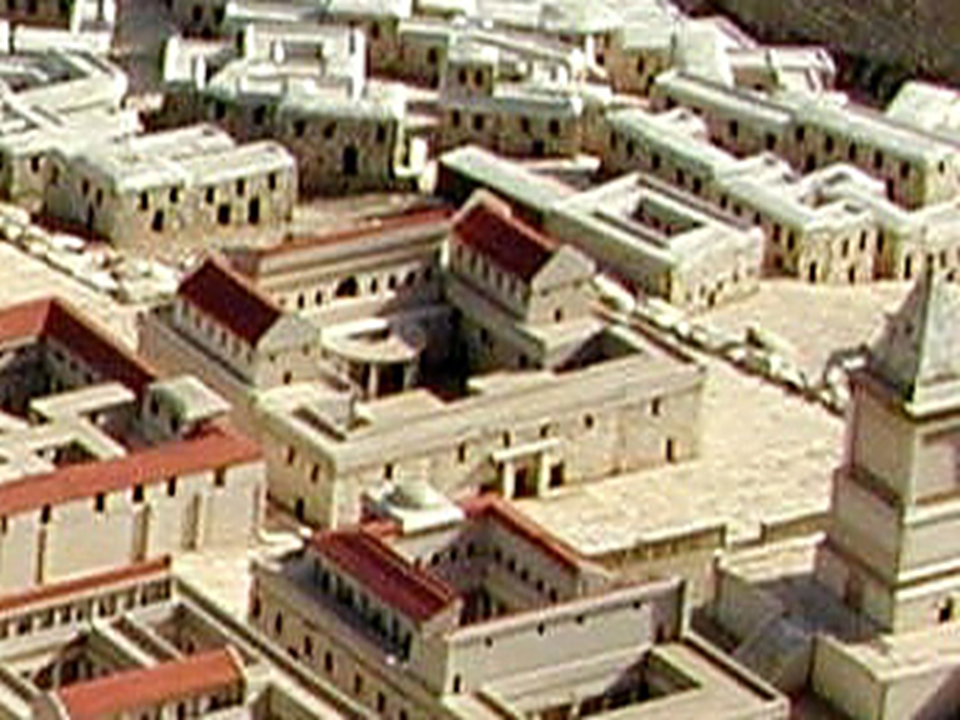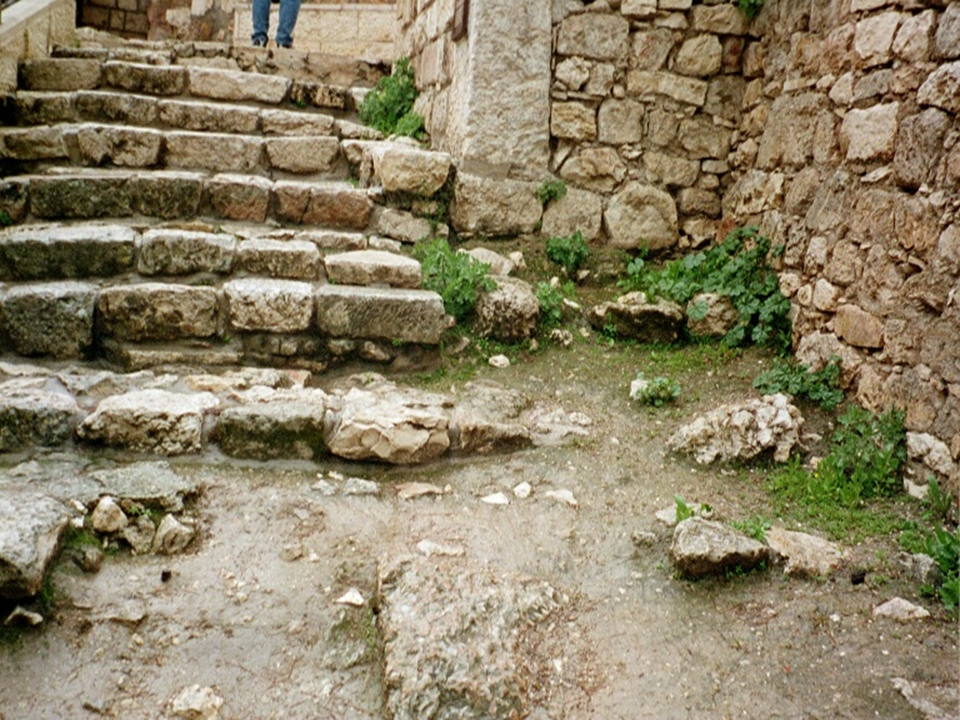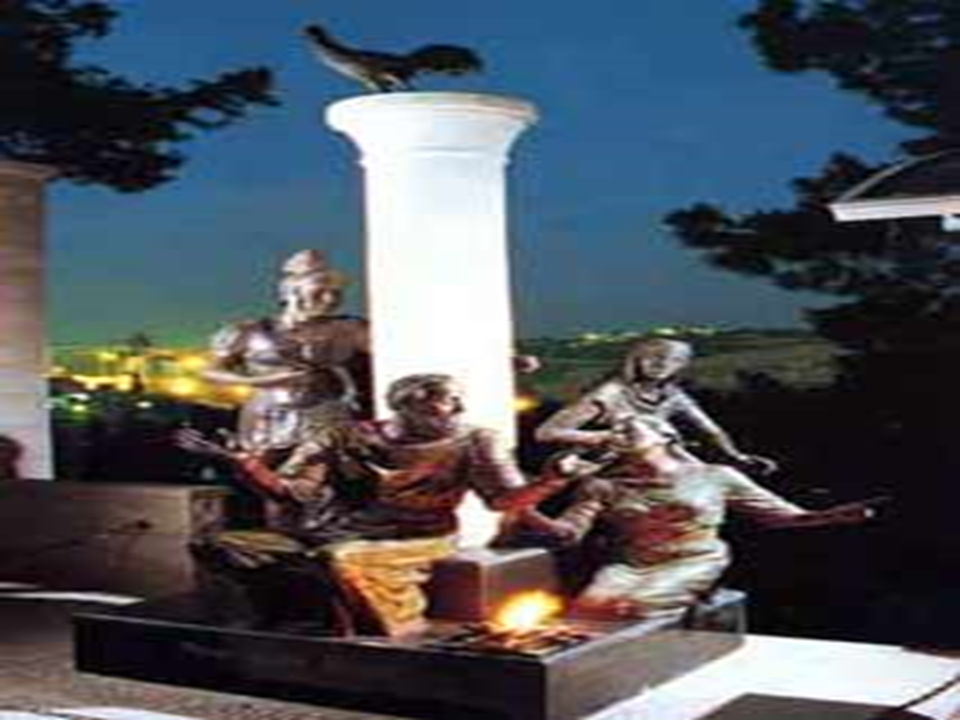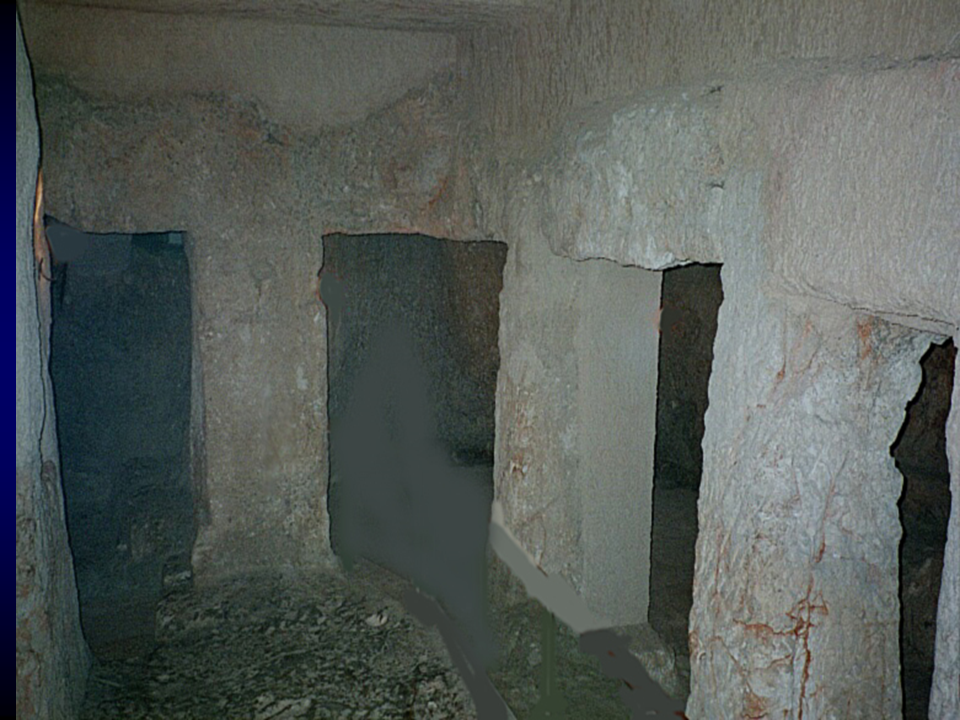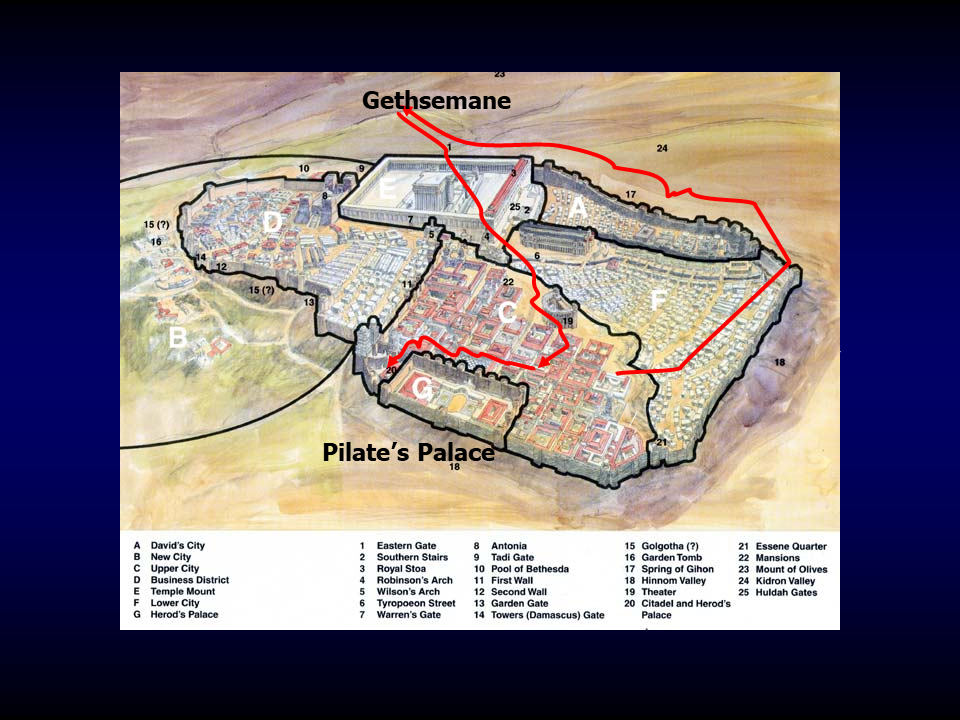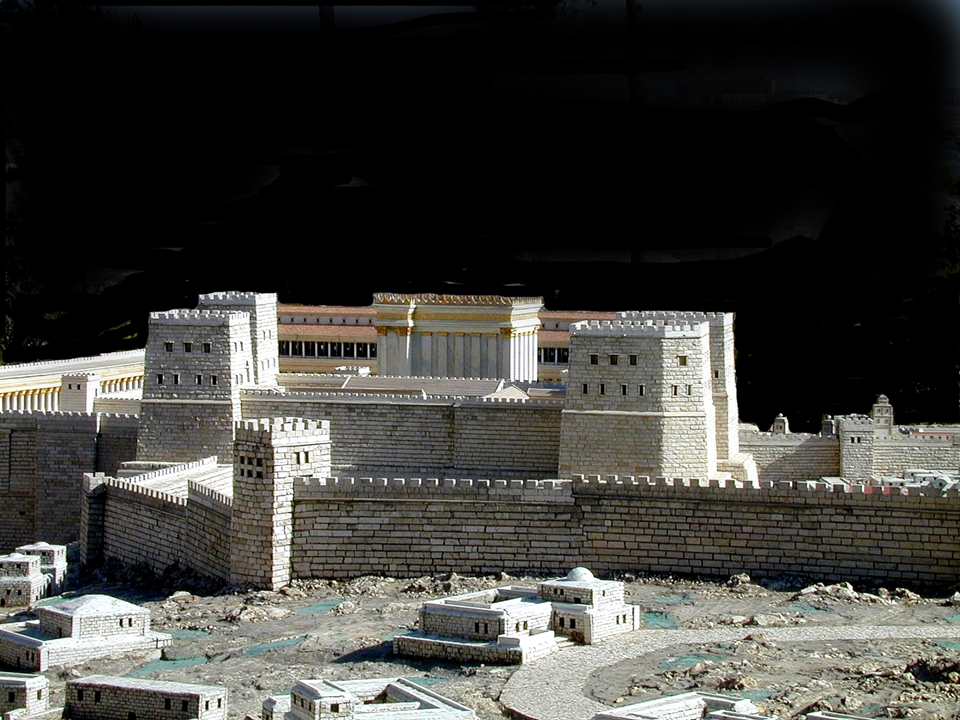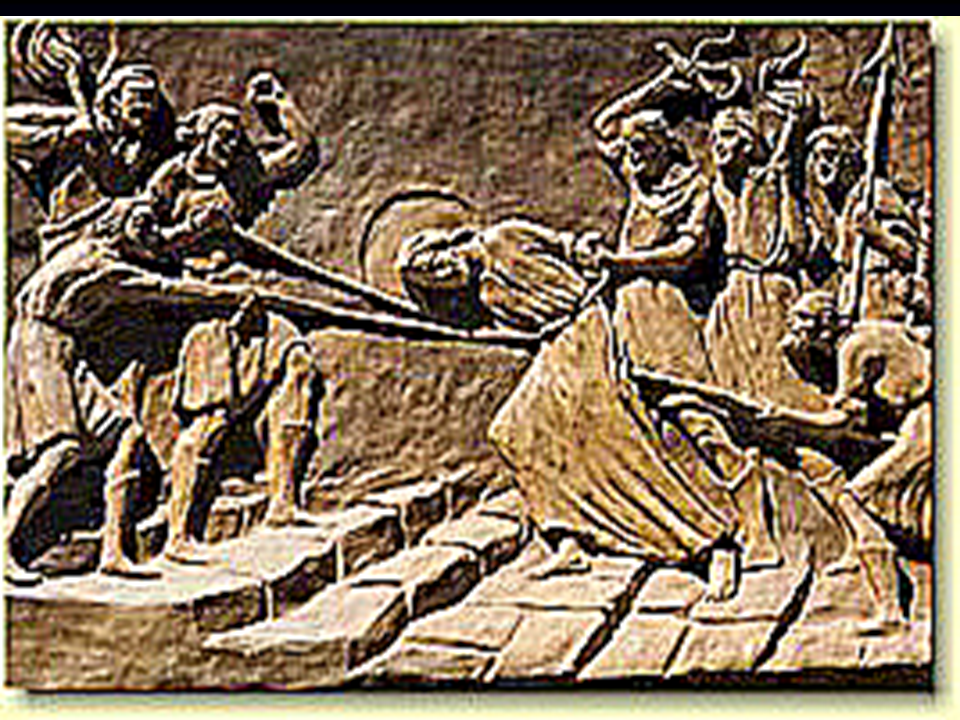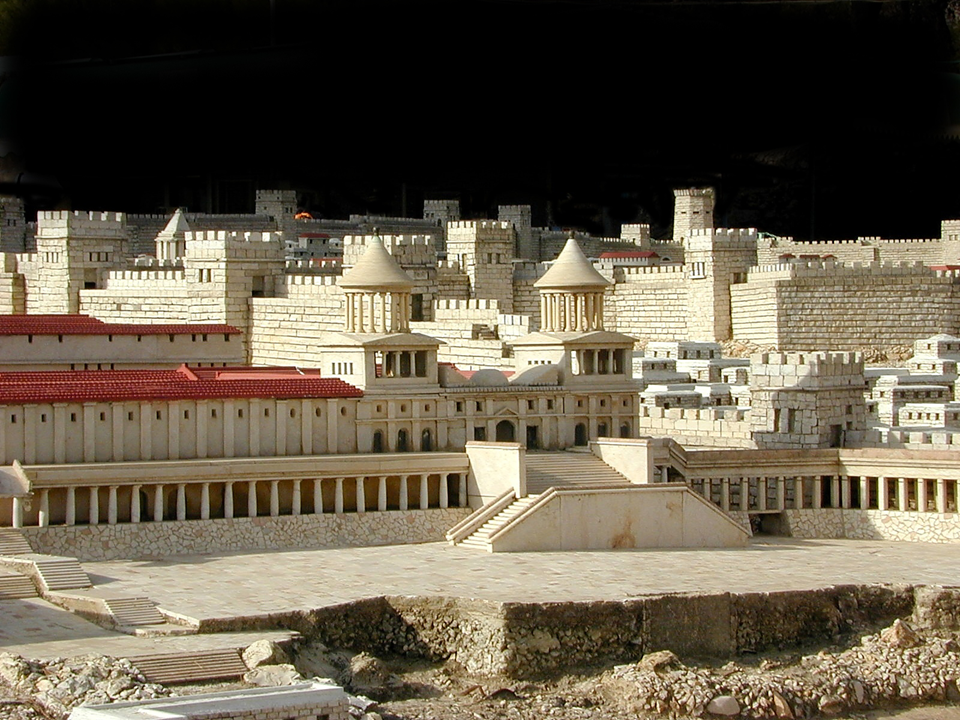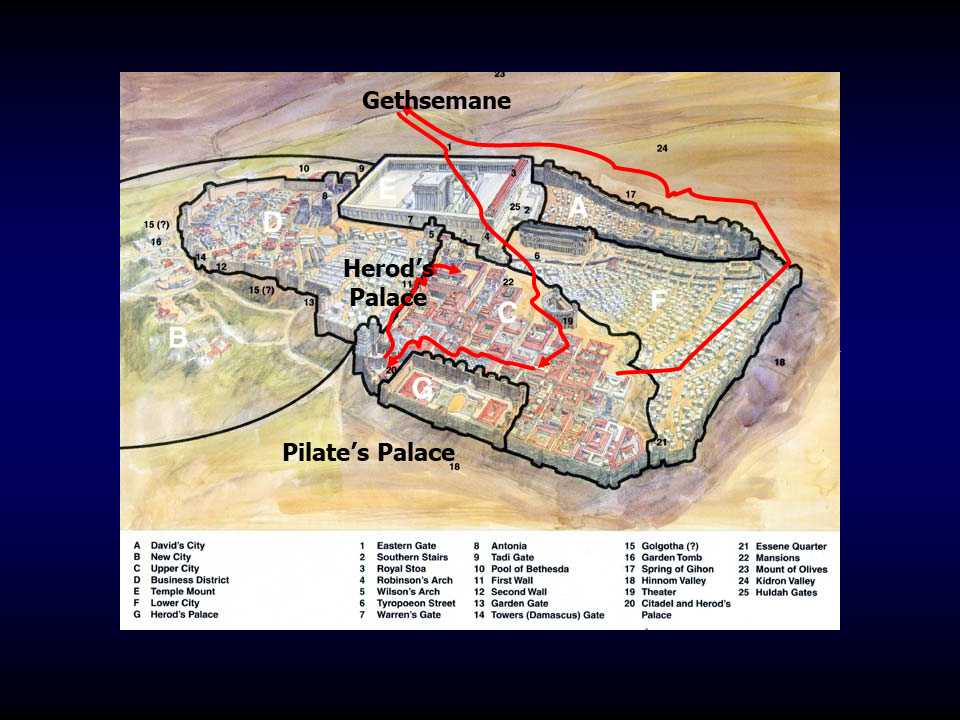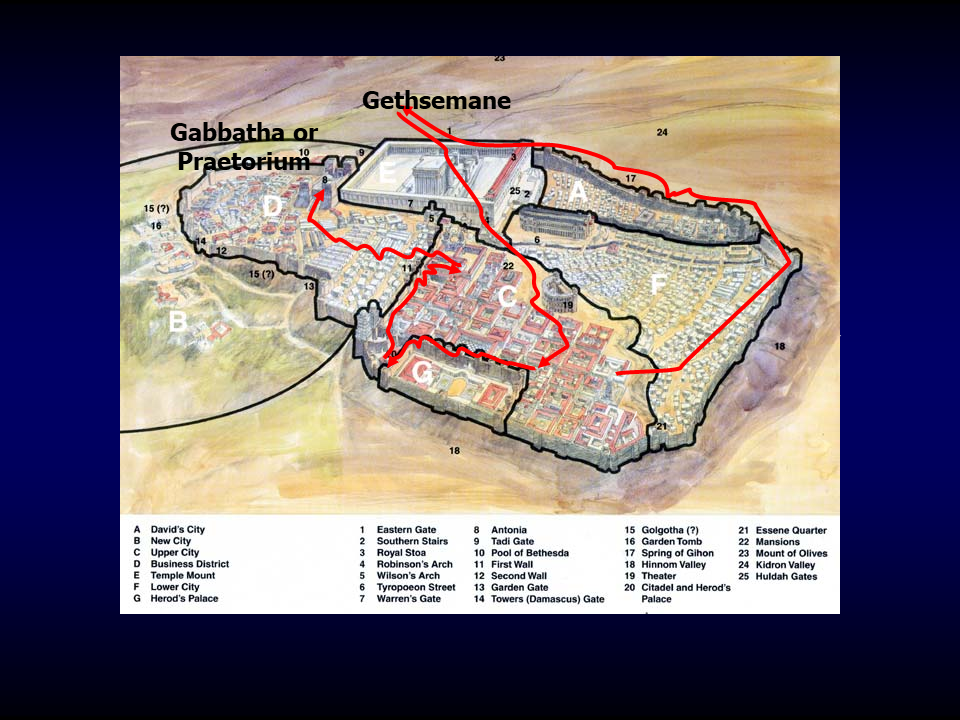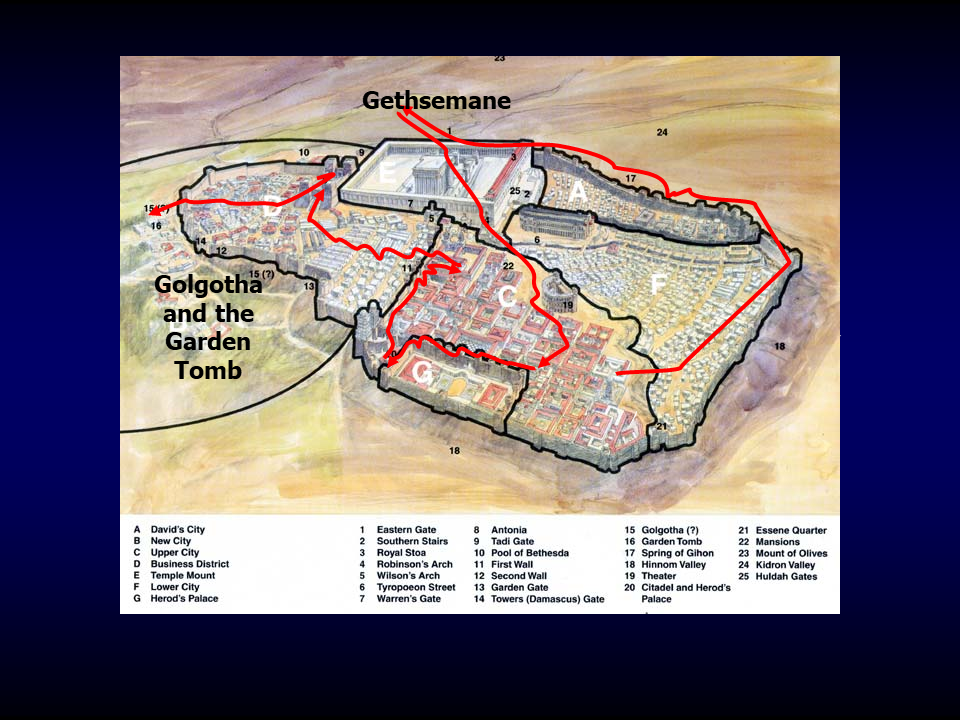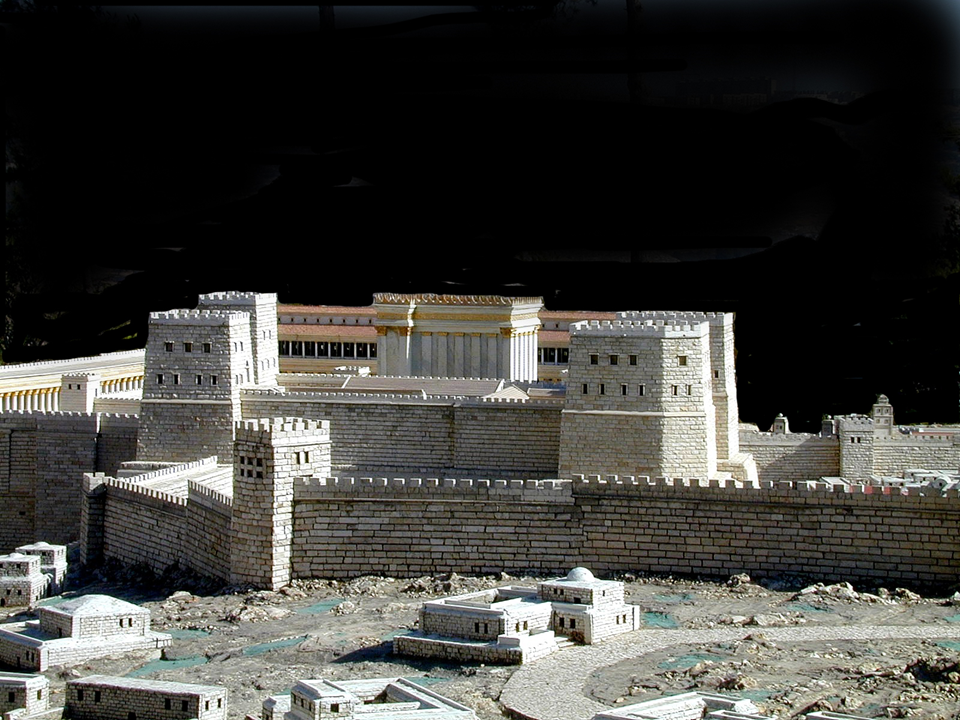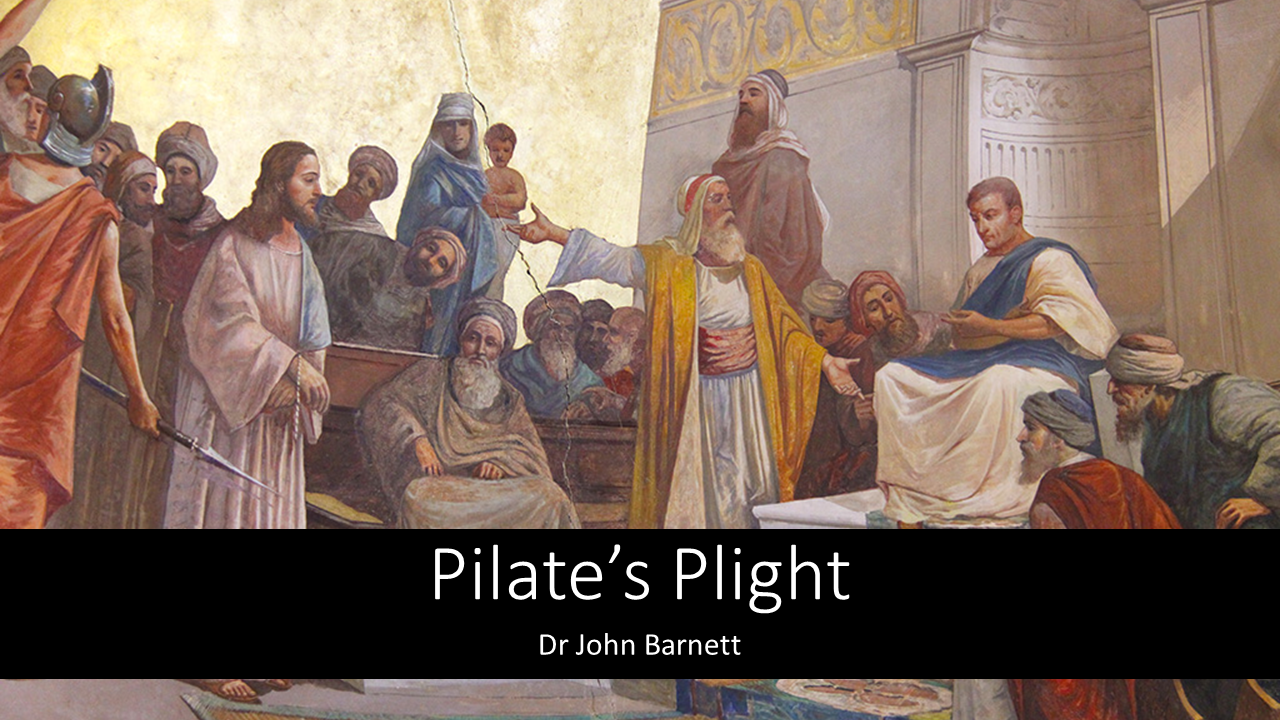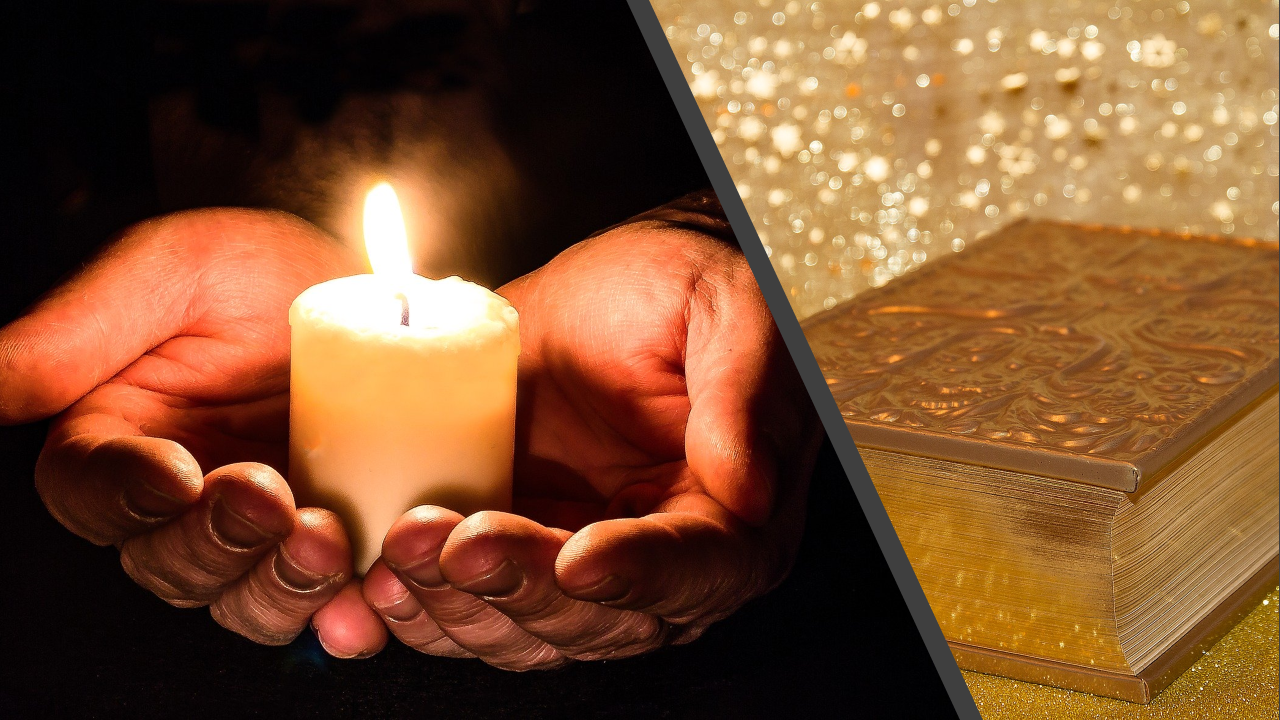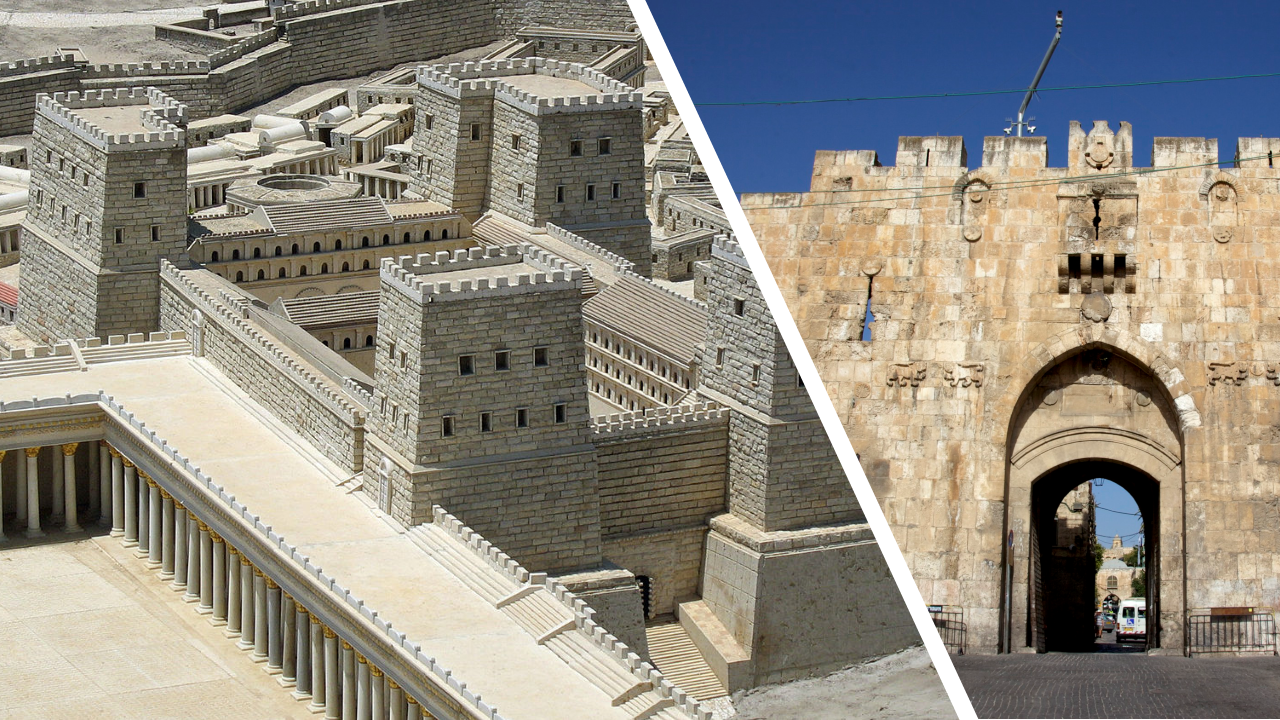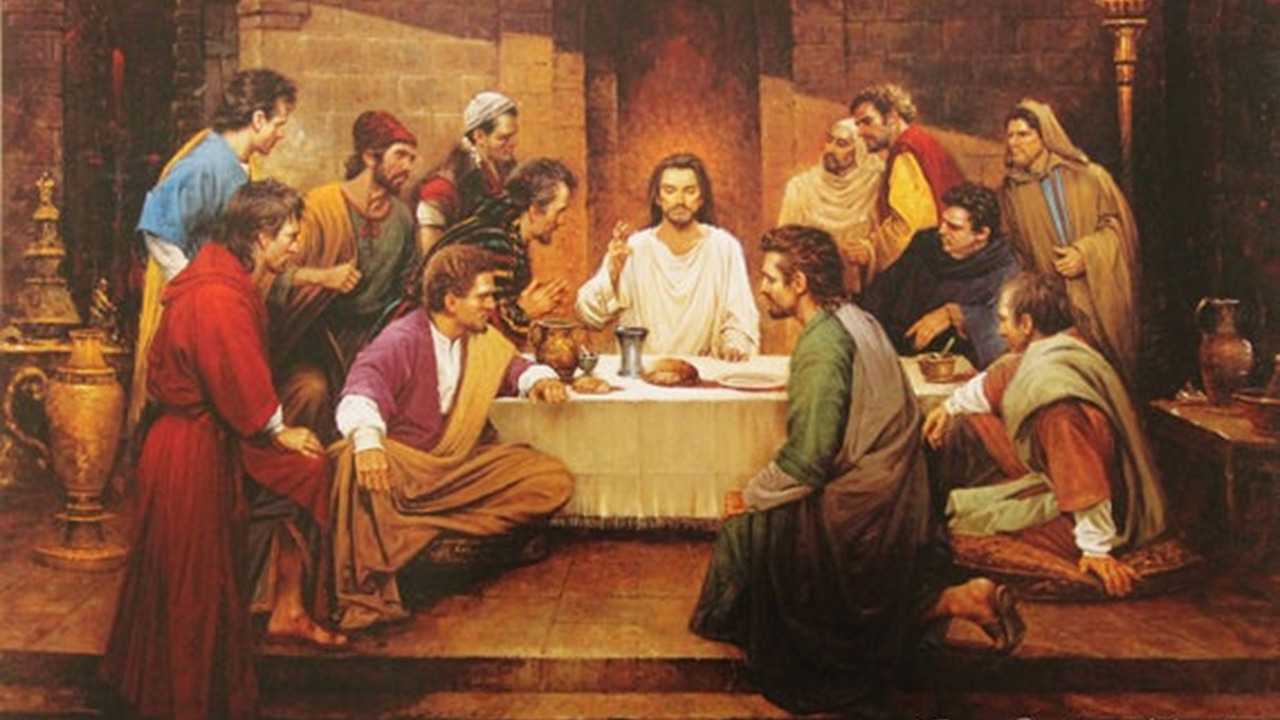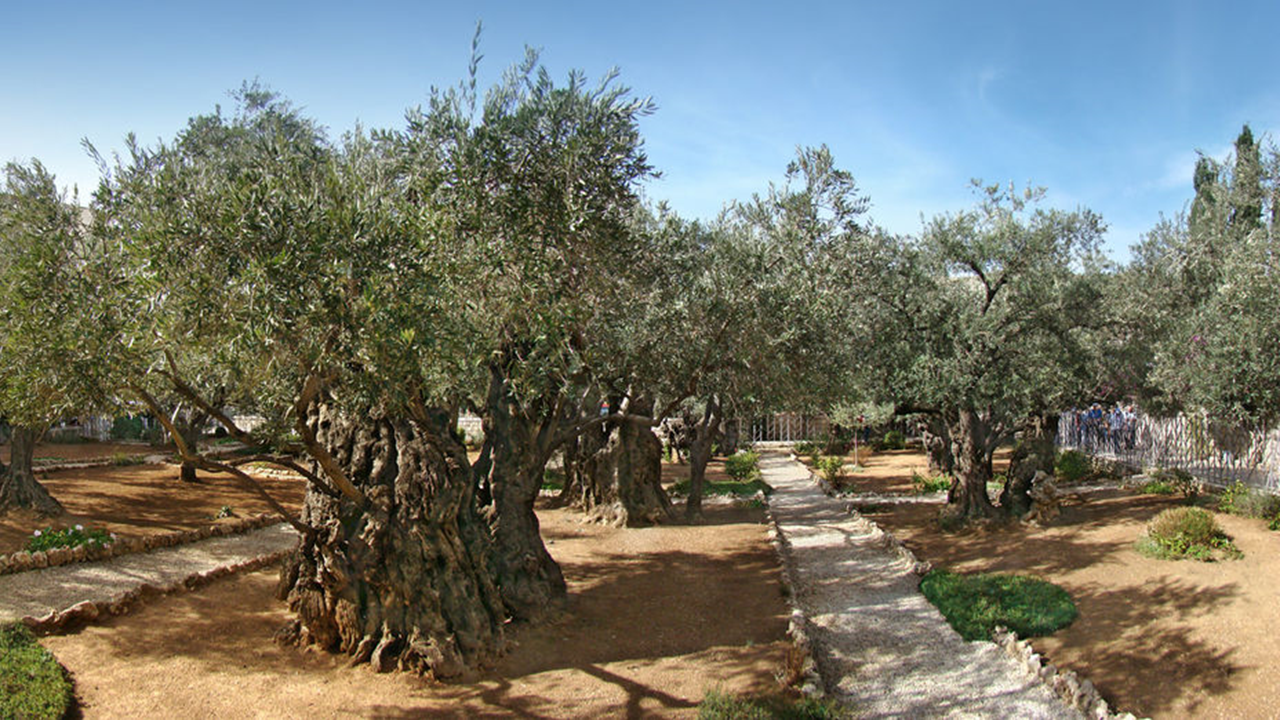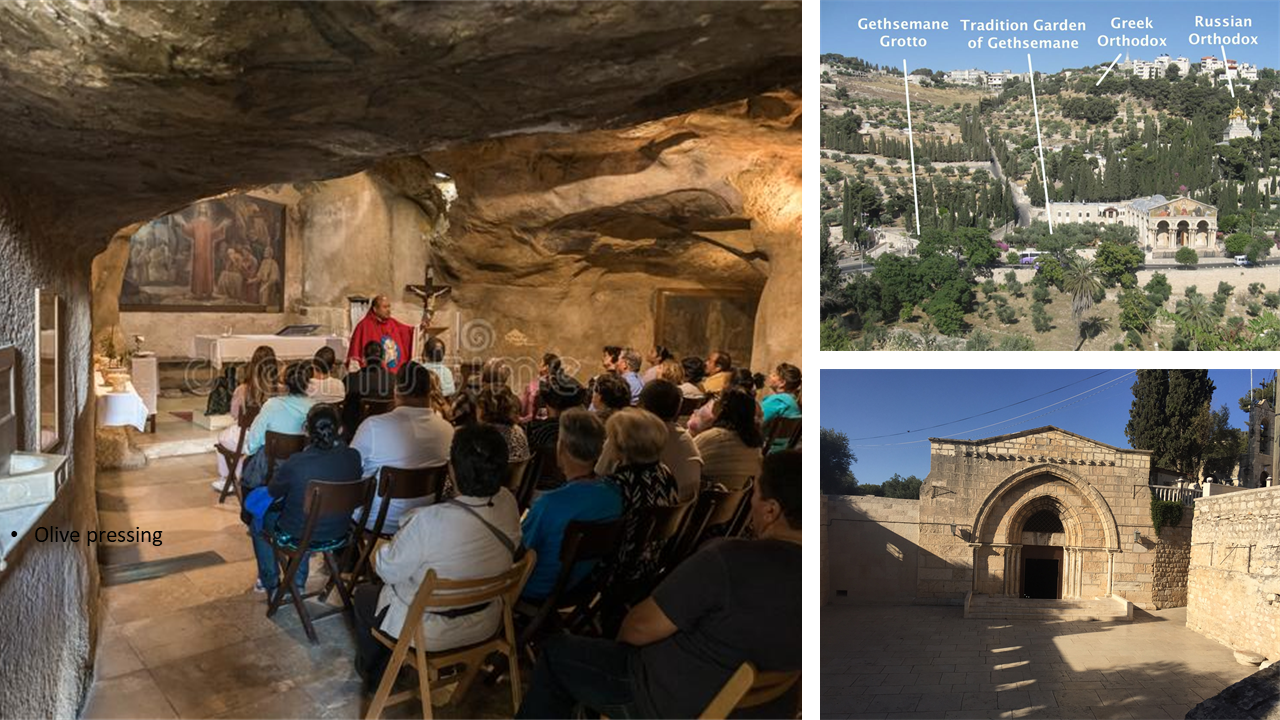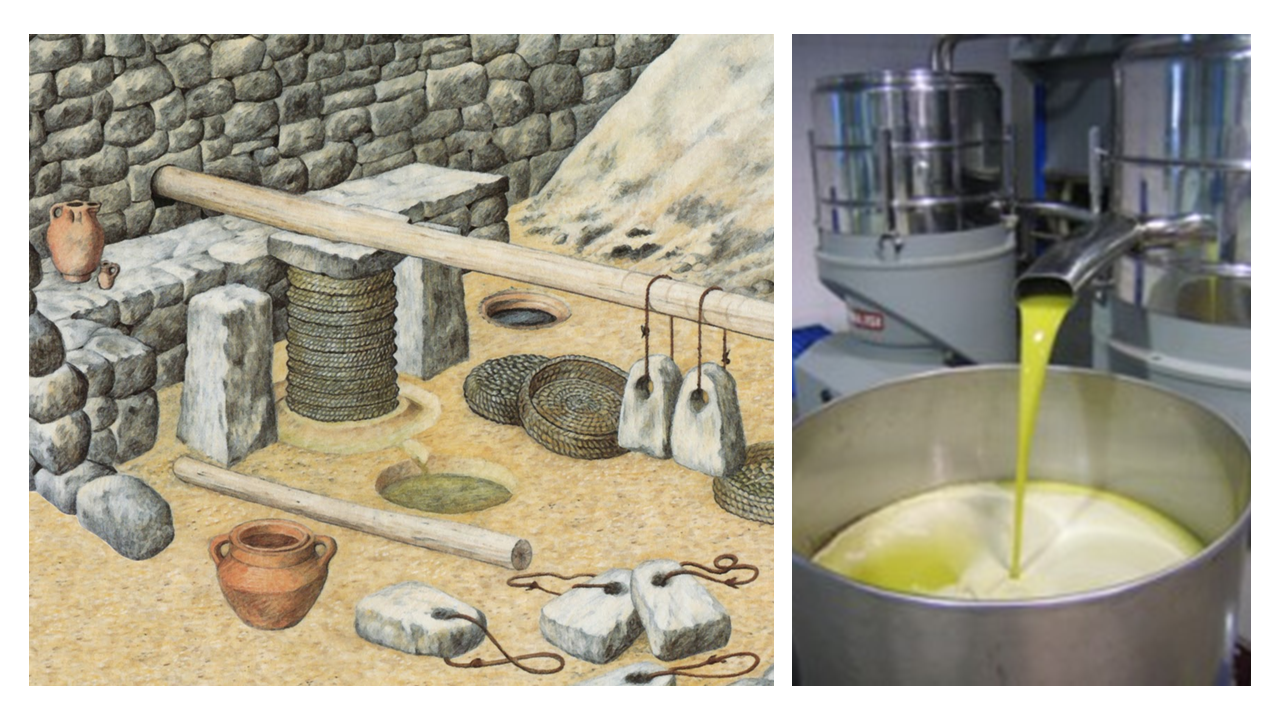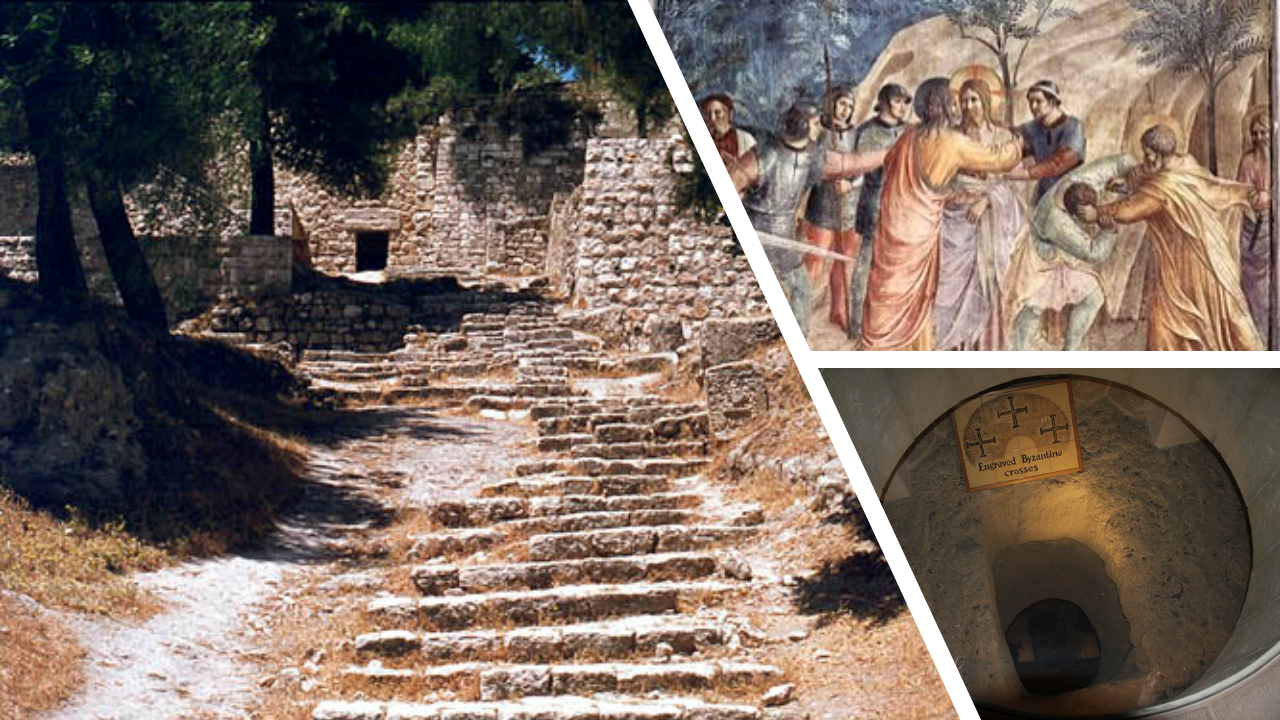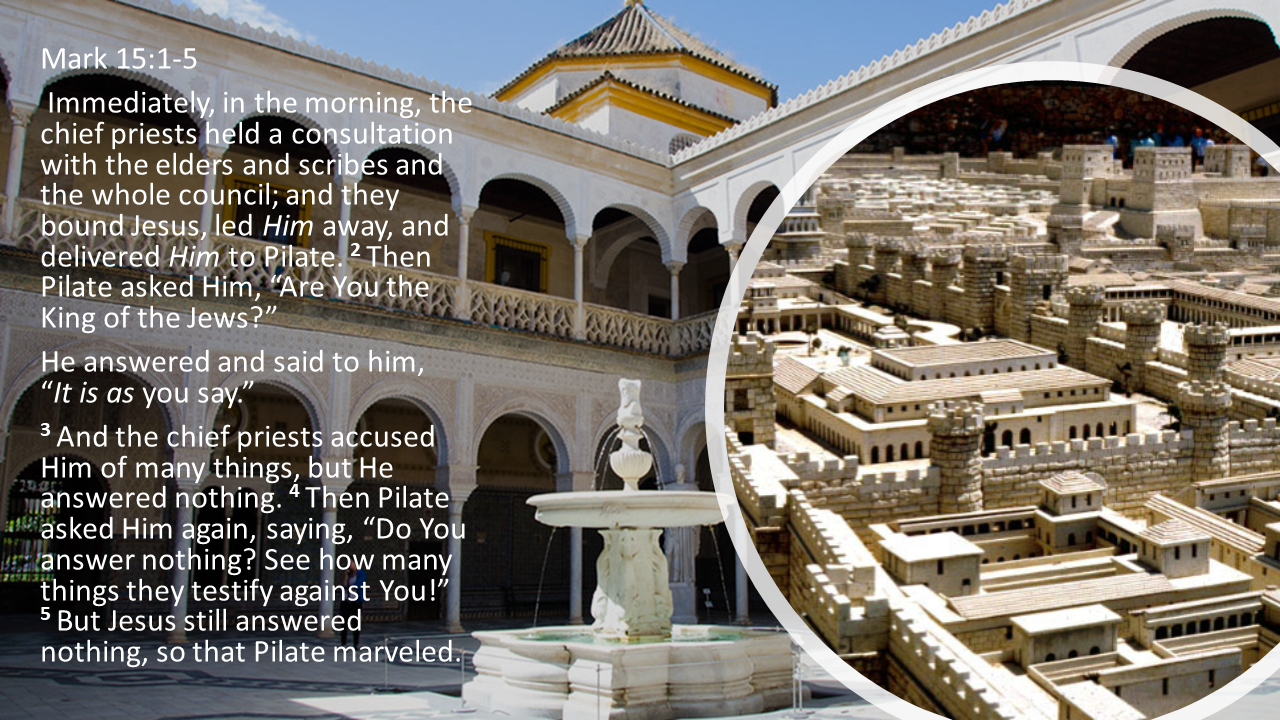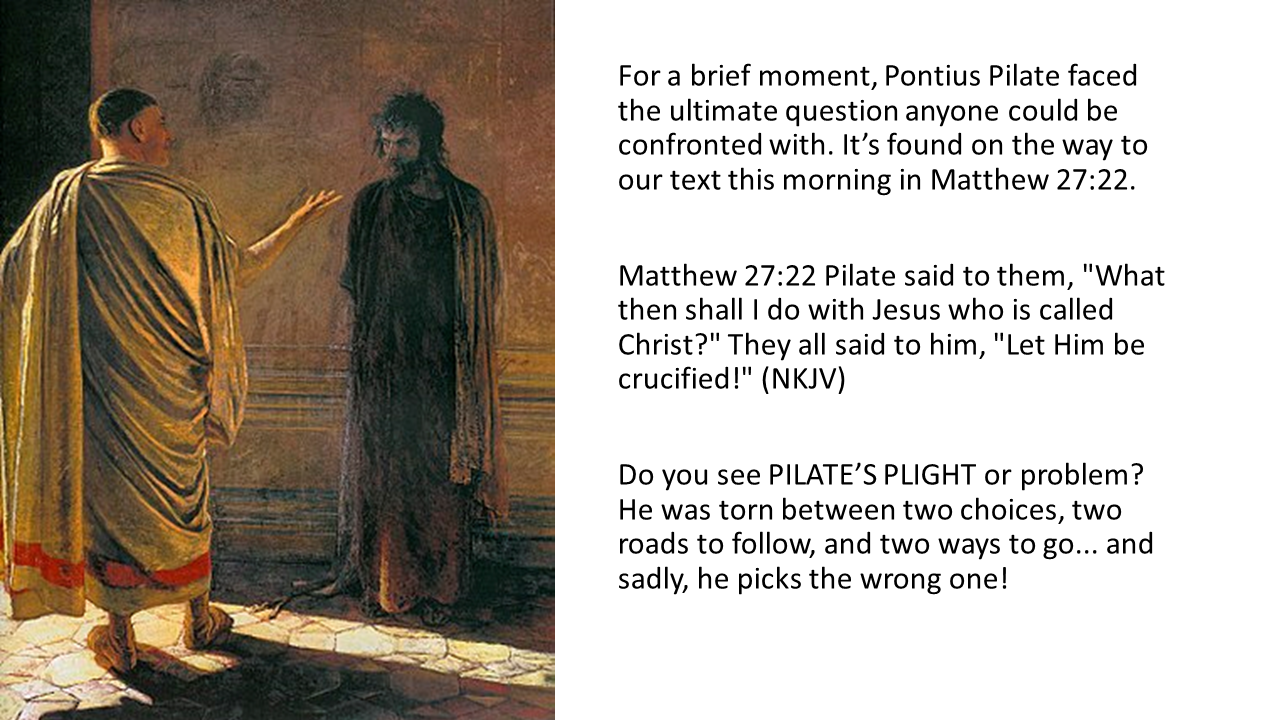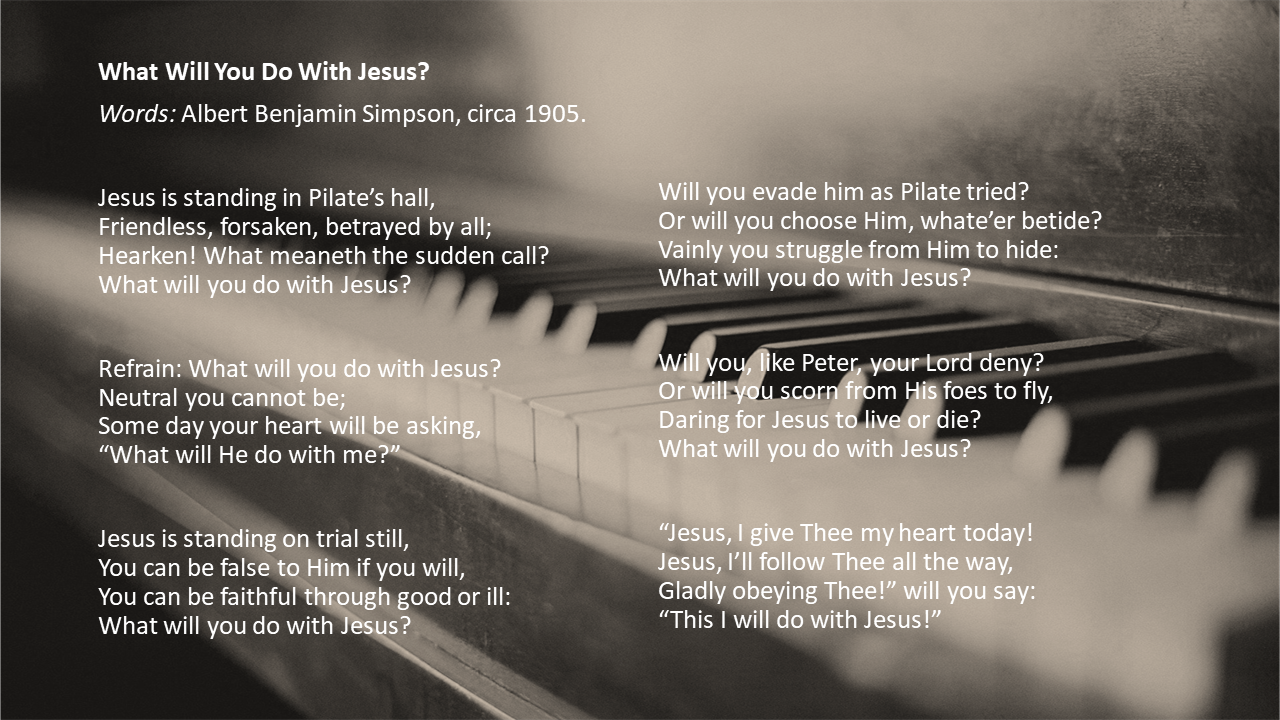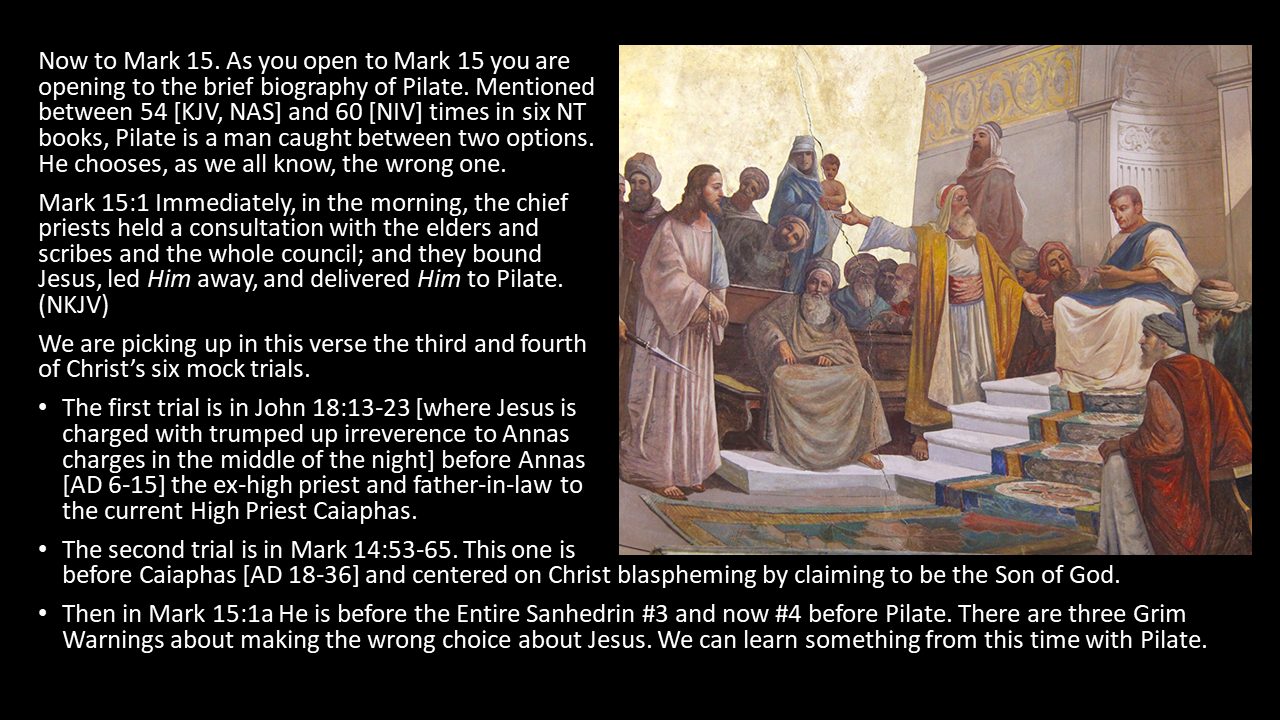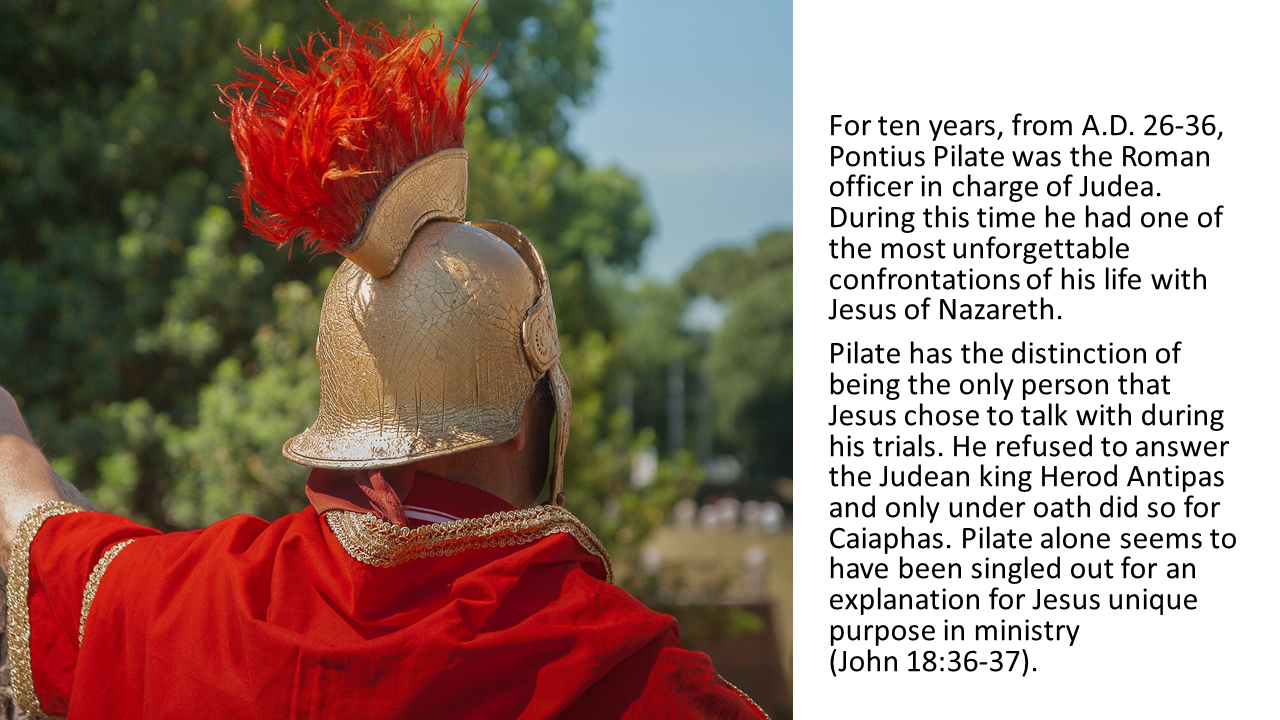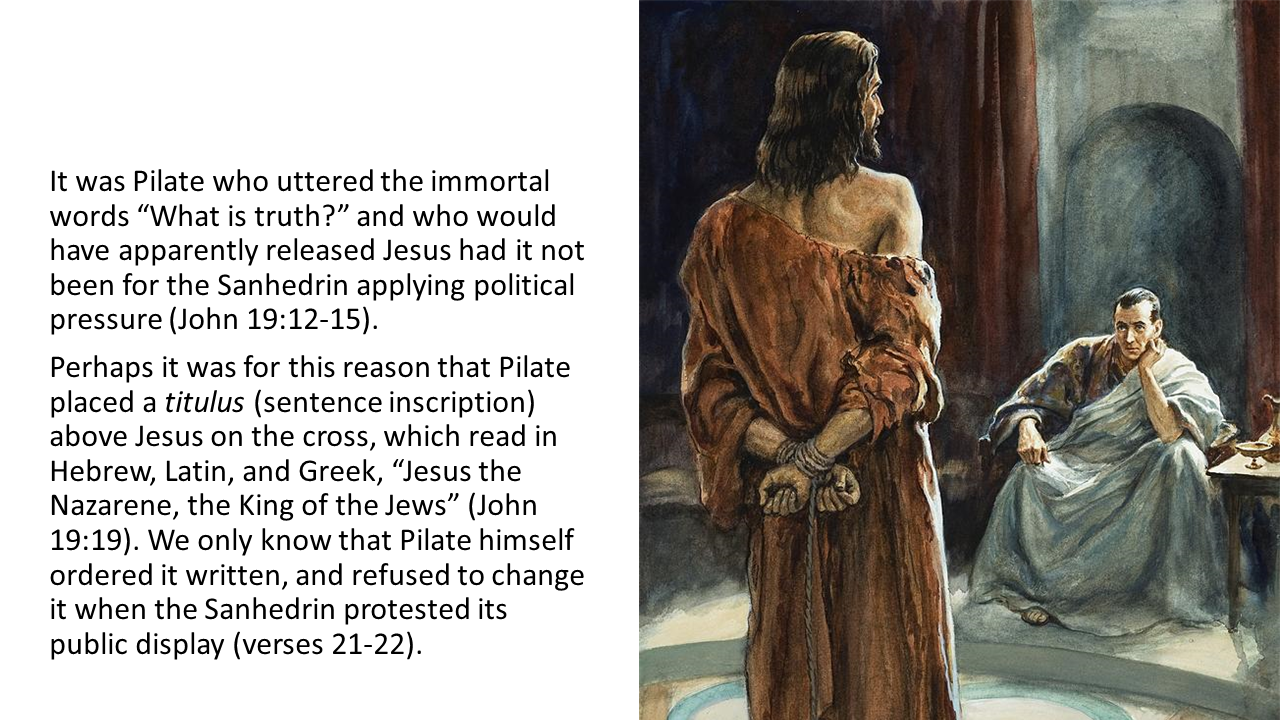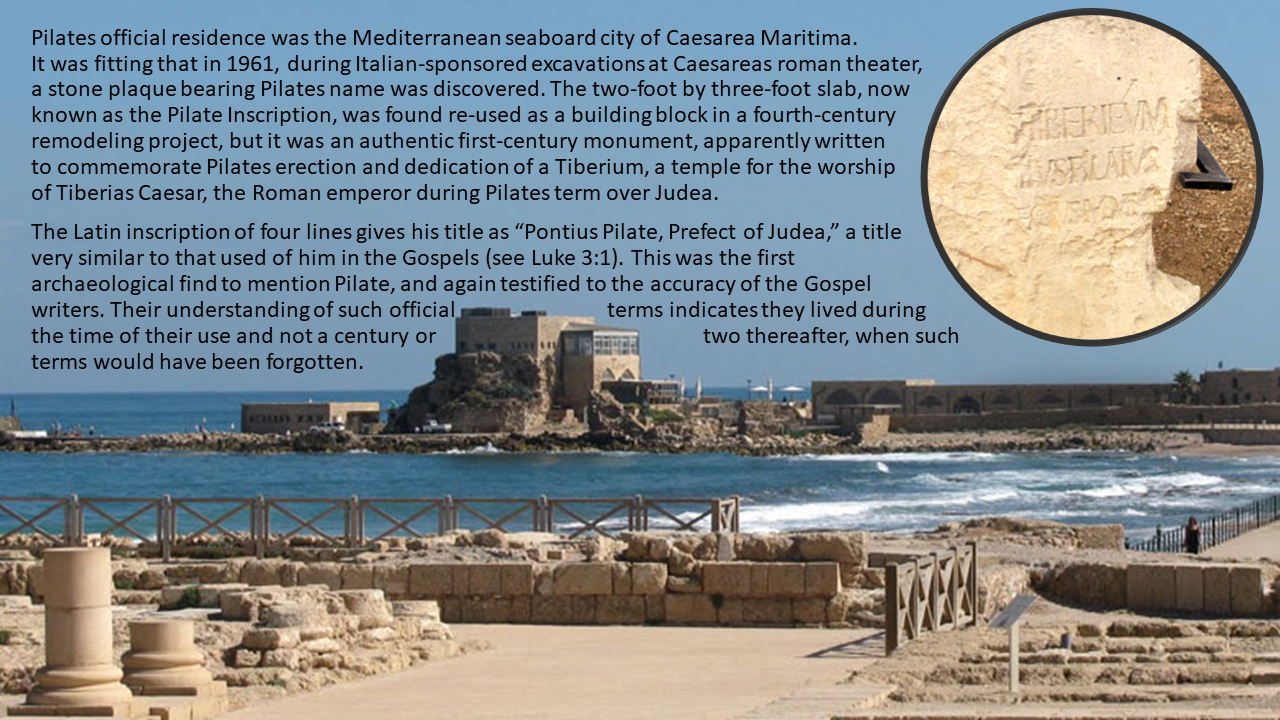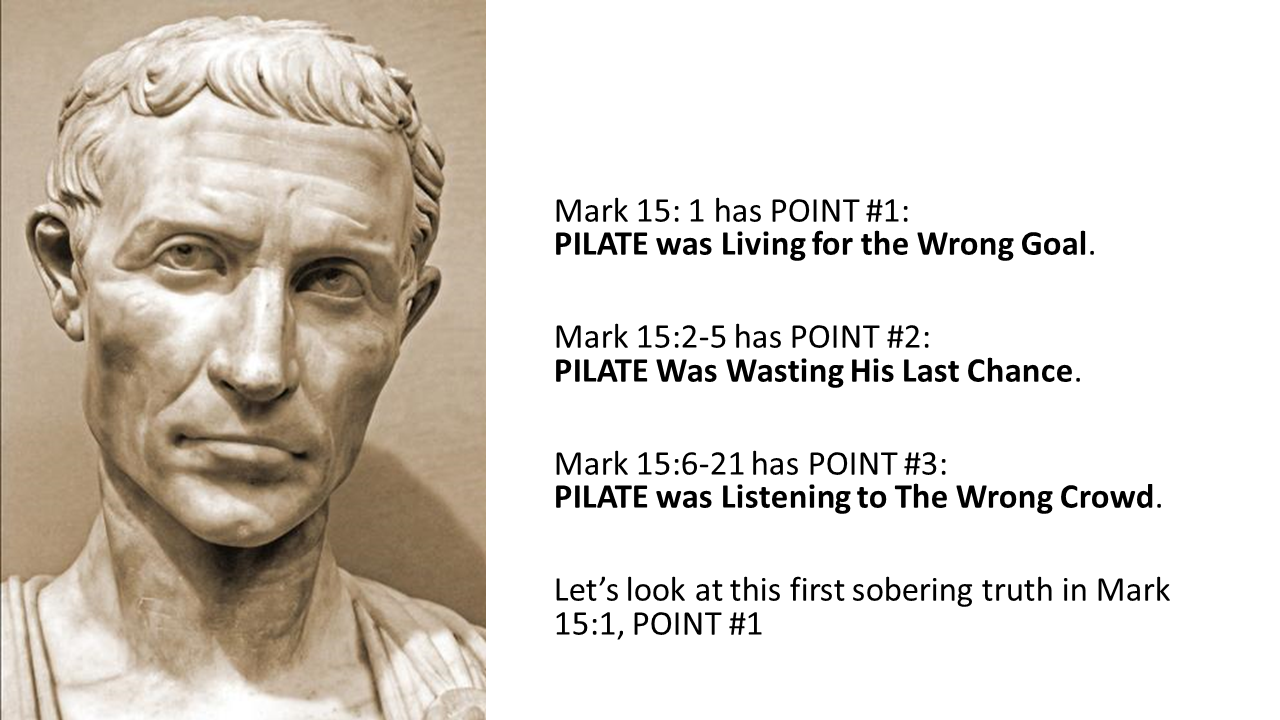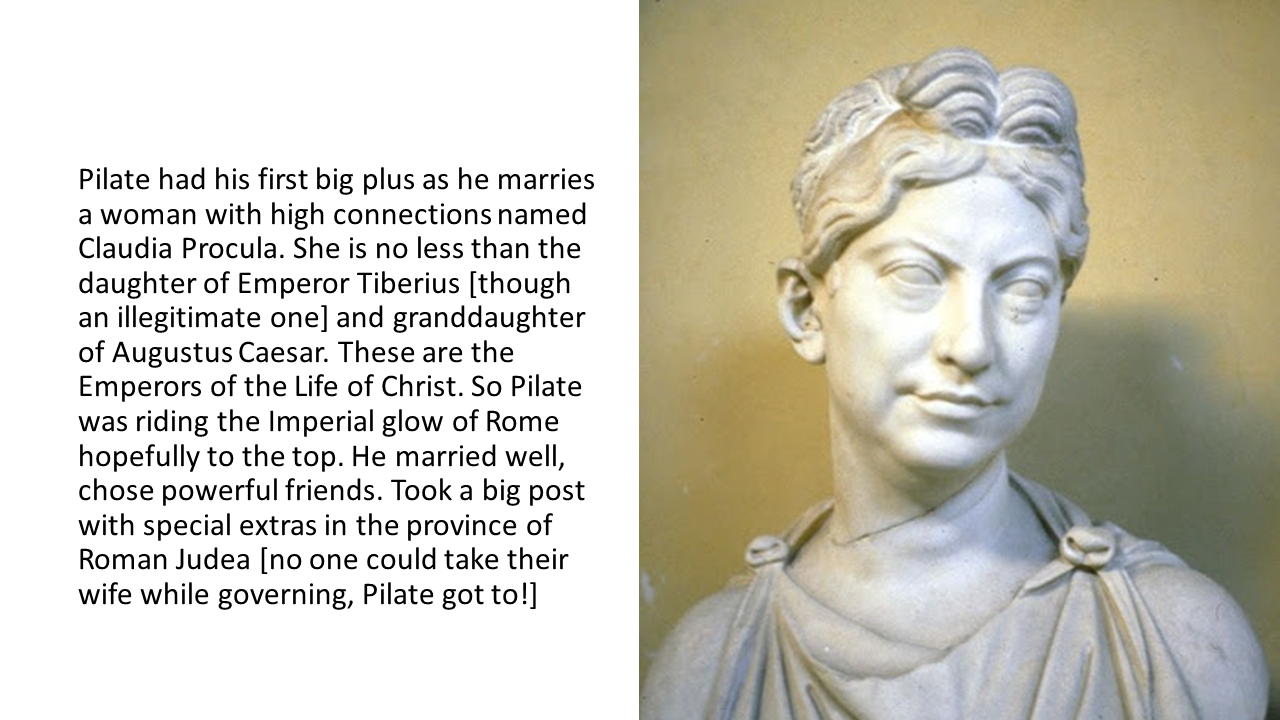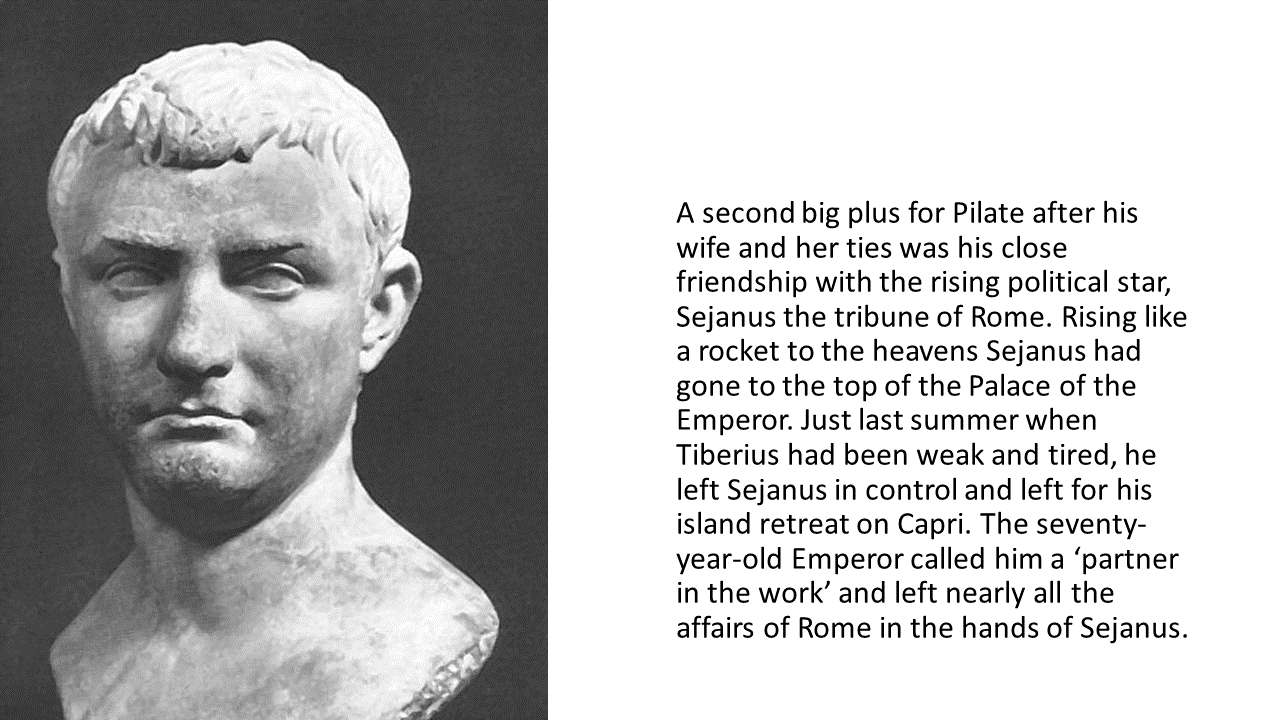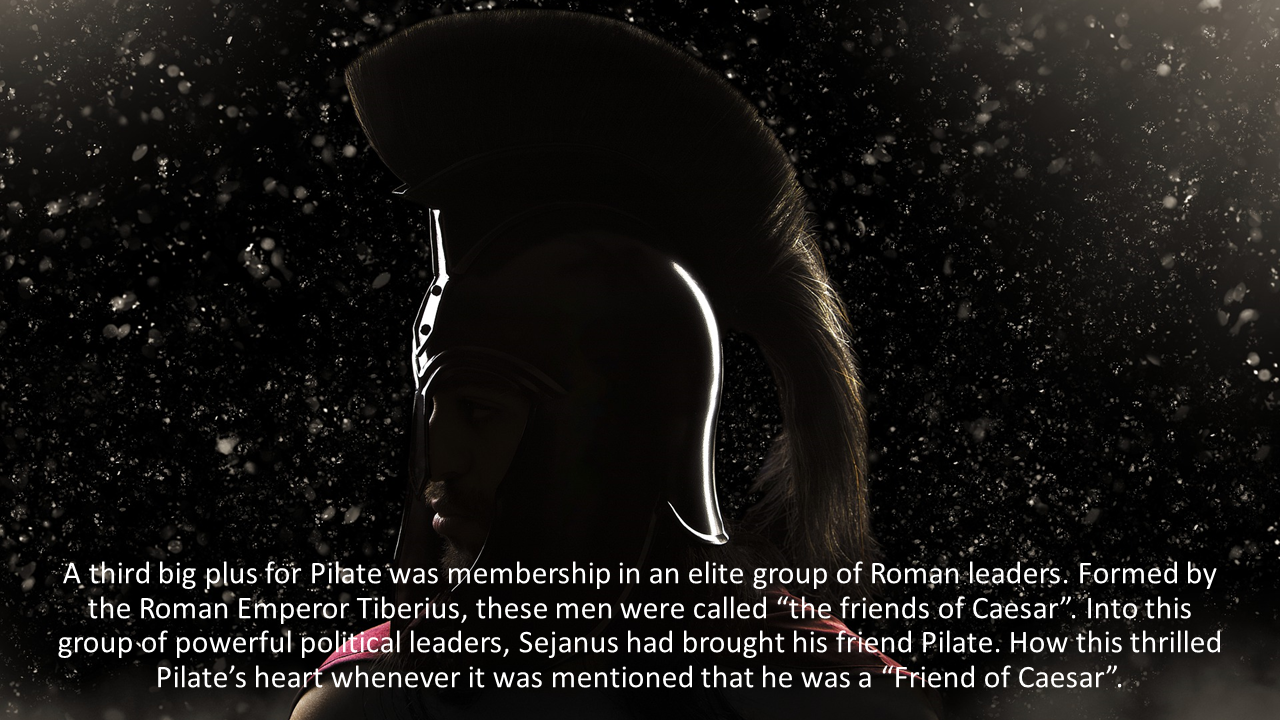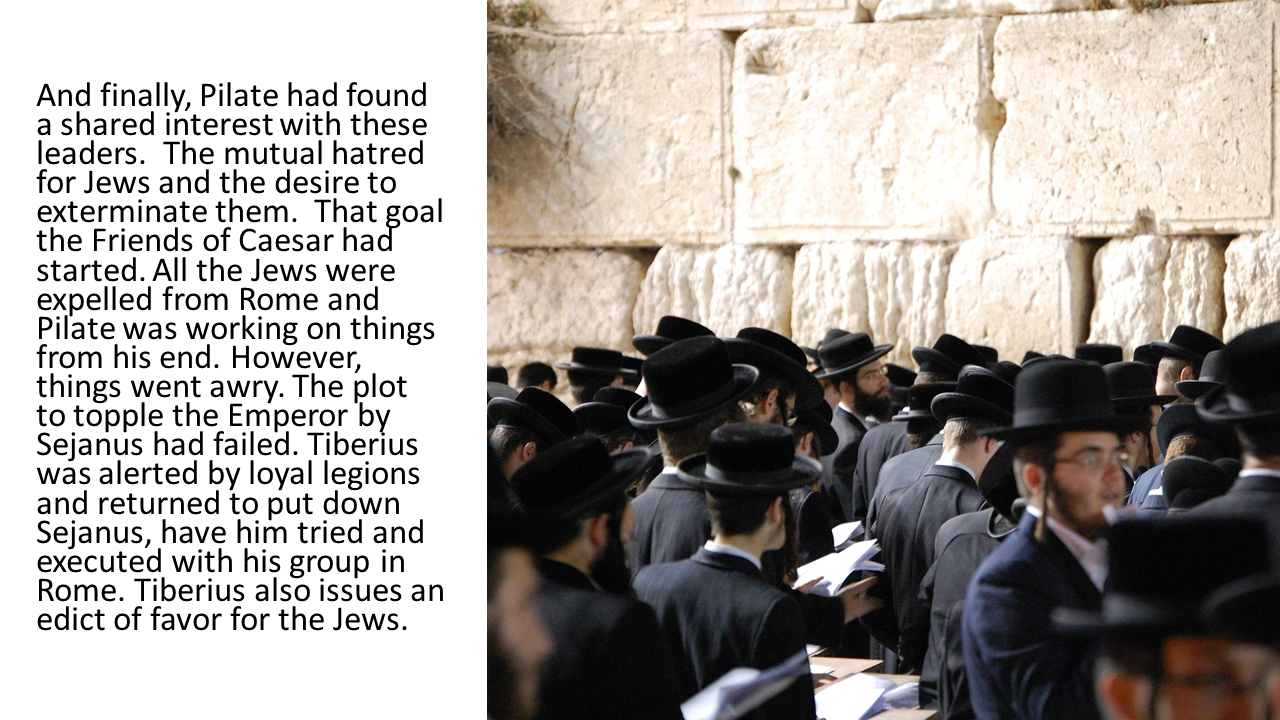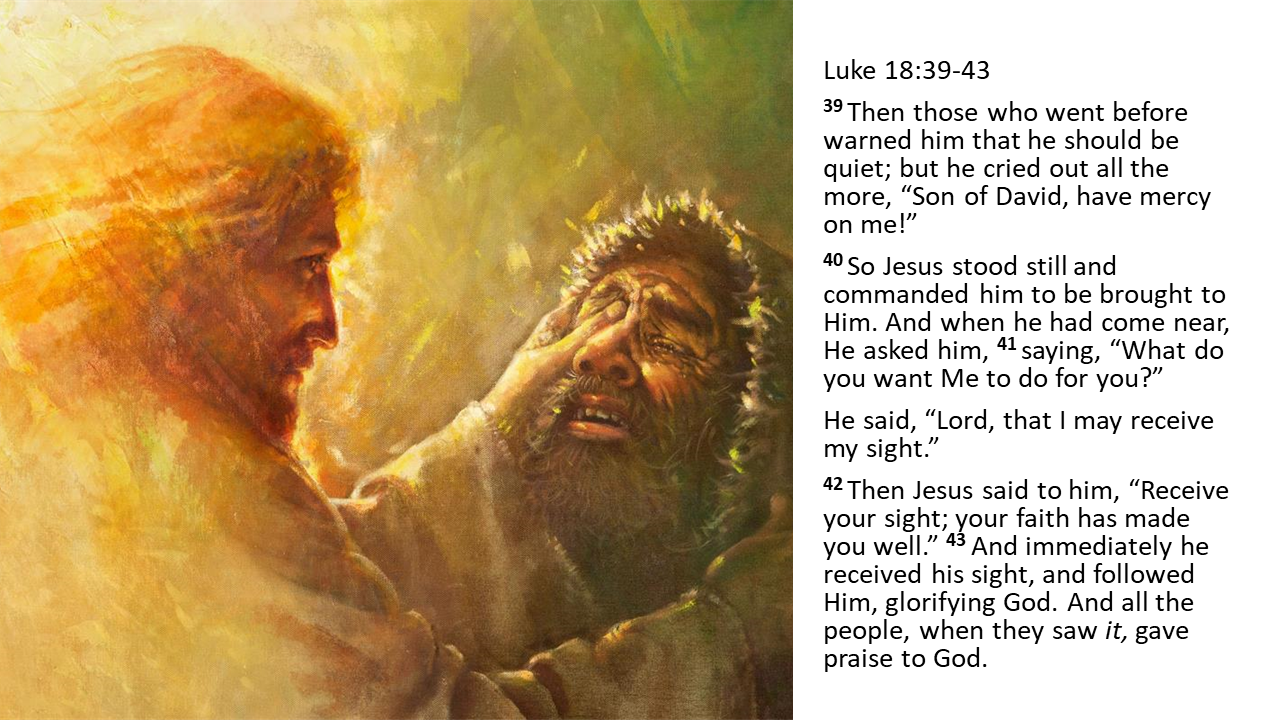BIO-10 NR2-41 WTB-14
040307PM
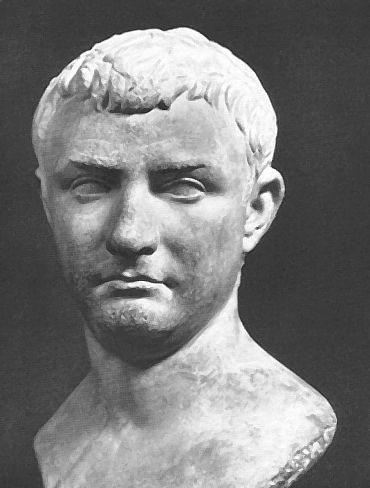 For a brief moment, Pontius Pilate faced the ultimate question anyone could be confronted with. It’s found on the way to our text this morning in Matthew 27:22.
For a brief moment, Pontius Pilate faced the ultimate question anyone could be confronted with. It’s found on the way to our text this morning in Matthew 27:22.
Matthew 27:22 Pilate said to them, “What then shall I do with Jesus who is called Christ?” They all said to him, “Let Him be crucified!” (NKJV)
Do you see PILATE’S PLIGHT or problem? He was torn between two choices, two roads to follow, and two ways to go… and sadly, he picks the wrong one!
What Will You Do With Jesus?
Words: Albert Benjamin Simpson, circa 1905.
Jesus is standing in Pilate’s hall,
Friendless, forsaken, betrayed by all;
Hearken! What meaneth the sudden call?
What will you do with Jesus?
Refrain
What will you do with Jesus?
Neutral you cannot be;
Some day your heart will be asking,
“What will He do with me?”
Jesus is standing on trial still,
You can be false to Him if you will,
You can be faithful through good or ill:
What will you do with Jesus?
Will you evade him as Pilate tried?
Or will you choose Him, whate’er betide?
Vainly you struggle from Him to hide:
What will you do with Jesus?
Will you, like Peter, your Lord deny?
Or will you scorn from His foes to fly,
Daring for Jesus to live or die?
What will you do with Jesus?
“Jesus, I give Thee my heart today!
Jesus, I’ll follow Thee all the way,
Gladly obeying Thee!” will you say:
“This I will do with Jesus!”
Now to Mark 15. As you open to Mark 15 you are opening to the brief biography of Pilate. Mentioned between 54 [KJV, NAS] and 60 [NIV] times in six NT books, Pilate is a man caught between two options. He chooses, as we all know, the wrong one.
Mark 15:1 Immediately, in the morning, the chief priests held a consultation with the elders and scribes and the whole council; and they bound Jesus, led Him away, and delivered Him to Pilate. (NKJV)
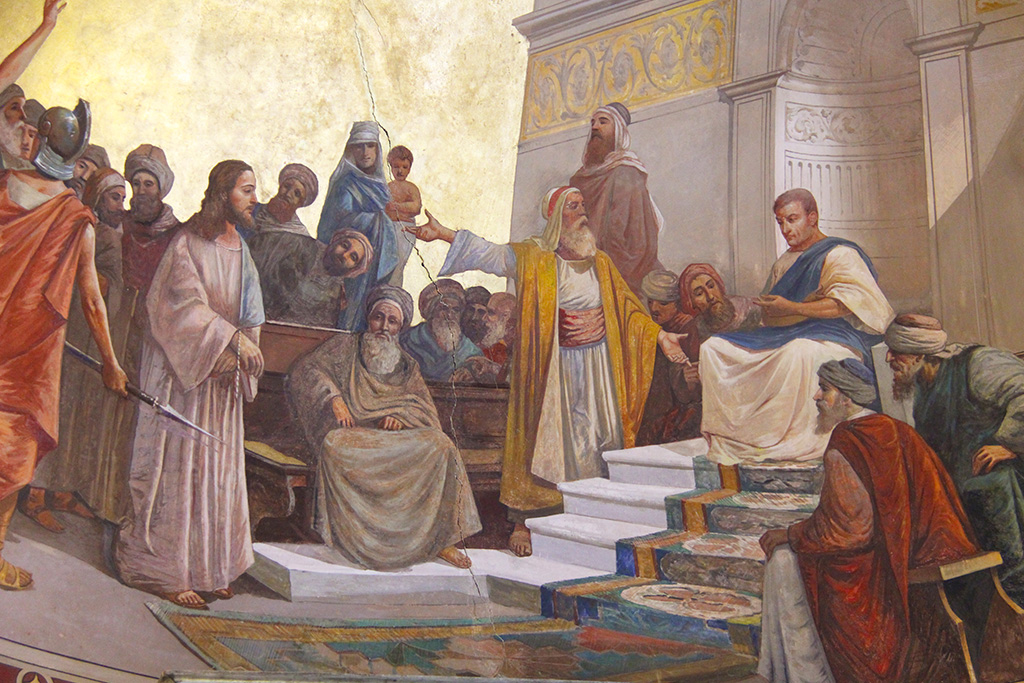 We are picking up in this verse the third and fourth of Christ’s six mock trials.
We are picking up in this verse the third and fourth of Christ’s six mock trials.
- The first trial is in John 18:13-23 [where Jesus is charged with trumped up irreverence to Annas charges in the middle of the night] before Annas [AD 6-15] the ex-high priest and father-in-law to the current High Priest Caiaphas.
- The second trial is in Mark 14:53-65. This one is before Caiaphas [AD 18-36] and centered on Christ blaspheming by claiming to be the Son of God.
- Then in Mark 15:1a He is before the Entire Sanhedrin #3 and now #4 before Pilate. There are three Grim Warnings about making the wrong choice about Jesus. We can learn something from this time with Pilate.
Pontius Pilate Appears: For ten years, from A.D. 26-36, Pontius Pilate was the Roman officer in charge of Judea. During this time he had one of the most unforgettable confrontations of his life with Jesus of Nazareth.
- Pilate has the distinction of being the only person that Jesus chose to talk with during his trials. He refused to answer the Judean king Herod Antipas and only under oath did so for Caiaphas. Pilate alone seems to have been singled out for an explanation for Jesus unique purpose in ministry (John 18:36-37).
- It was Pilate who uttered the immortal words “What is truth?” and who would have apparently released Jesus had it not been for the Sanhedrin applying political pressure (John 19:12-15).
- Perhaps it was for this reason that Pilate placed a titulus (sentence inscription) above Jesus on the cross, which read in Hebrew, Latin, and Greek, “Jesus the Nazarene, the King of the Jews” (John 19:19). We only know that Pilate himself ordered it written, and refused to change it when the Sanhedrin protested its public display (verses 21-22).
Pilate’s official residence was the Mediterranean seaboard city of Caesarea Maritima. It was fitting that in 1961, during Italian-sponsored excavations at Caesarea’s roman theater, a stone plaque bearing Pilate’s name was discovered. The two-foot by three-foot slab, now known as the Pilate Inscription, was found re-used as a building block in a fourth-century remodeling project, but it was an authentic first-century monument, apparently written to commemorate Pilate’s erection and dedication of a Tiberium, a temple for the worship of Tiberias Caesar, the Roman emperor during Pilates term over Judea.
The Latin inscription of four lines gives his title as “Pontius Pilate, Prefect of Judea,” a title very similar to that used of him in the Gospels (see Luke 3:1). This was the first archaeological find to mention Pilate, and again testified to the accuracy of the Gospel writers. Their understanding of such official terms indicates they lived during the time of their use and not a century or two thereafter, when such terms would have been forgotten.
Mark 15: 1 has POINT #1: PILATE was Living for the Wrong Goal.
Mark 15:2-5 has POINT #2: PILATE Was Wasting His Last Chance.
Mark 15:6-21 has POINT #3: PILATE was Listening to The Wrong Crowd.
Let’s look at this first sobering truth in Mark 15:1, POINT #1
Mark 15:1 Immediately, in the morning, the chief priests held a consultation with the elders and scribes and the whole council; and they bound Jesus, led Him away, and delivered Him to Pilate. (NKJV)
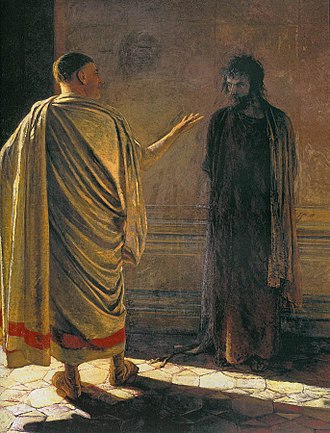 We know much of Pilate from history[1].
We know much of Pilate from history[1].
- Pilate had his first big plus as he marries a woman with high connections named Claudia Procula. She is no less than the daughter of Emperor Tiberius [though an illegitimate one] and granddaughter of Augustus Caesar. These are the Emperors of the Life of Christ. So Pilate was riding the Imperial glow of Rome hopefully to the top. He married well, chose powerful friends. Took a big post with special extras in the province of Roman Judea [no one could take their wife while governing, Pilate got to!]
- A second big plus for Pilate after his wife and her ties was his close friendship with the rising political star, Sejanus the tribune of Rome. Rising like a rocket to the heavens Sejanus had gone to the top of the Palace of the Emperor. Just last summer when Tiberius had been weak and tired, he left Sejanus in control and left for his island retreat on Capri. The seventy-year-old Emperor called him a ‘partner in the work’ and left nearly all the affairs of Rome in the hands of Sejanus.
- A third big plus for Pilate was membership in an elite group of Roman leaders. Formed by the Roman Emperor Tiberius, these men were called “the friends of Caesar[2]”. Into this group of powerful political leaders, Sejanus had brought his friend Pilate. How this thrilled Pilate’s heart whenever it was mentioned that he was a “Friend of Caesar”.
- And finally, Pilate had found a shared interest with these leaders. The mutual hatred for Jews and the desire to exterminate them. That goal the Friends of Caesar had started. All the Jews were expelled from Rome and Pilate was working on things from his end. However, things went awry. The plot to topple the Emperor by Sejanus had failed. Tiberius was alerted by loyal legions and returned to put down Sejanus, have him tried and executed with his group in Rome. Tiberius also issues an edict of favor for the Jews.
Now Pilate was fearful of his life and worried about the Jews not accusing him before Tiberius. The tragic plight of one who was on all the wrong rides to all the wrong places.
- There are some parallel lives in the pages of Scripture. Remember the man in Luke 12:13-21 who gives us a similar plight of one who thought possessions would get him there?
- Remember Jesus preached that there were many wrong ways and only one difficult path to Heaven? He said this in Matthew 7:13-14.
Legend[3] tells us that if you were to wind through the Alps from Italy into Switzerland, there is a nearly inaccessible pool of icy waters ringed by snow-capped mountains. There at the end of a narrow snaking path on the frigid shore can be seen an aged, gray-haired man clad in the purple toga of Rome. He is bent over and desperately scrubbing his hands in those crystal clear waters mumbling over and over again, “ I am innocent. I am innocent of this man’s blood”. Although we know it’s not true, it reminds us of the man who missed the only bus that could take him safely home.
What are you waiting for? The narrow and difficult walk to the Celestial city or the fun bus to Eternal Destruction? Pilate was waiting for the wrong bus.
Mark 15:2-5 has POINT #2
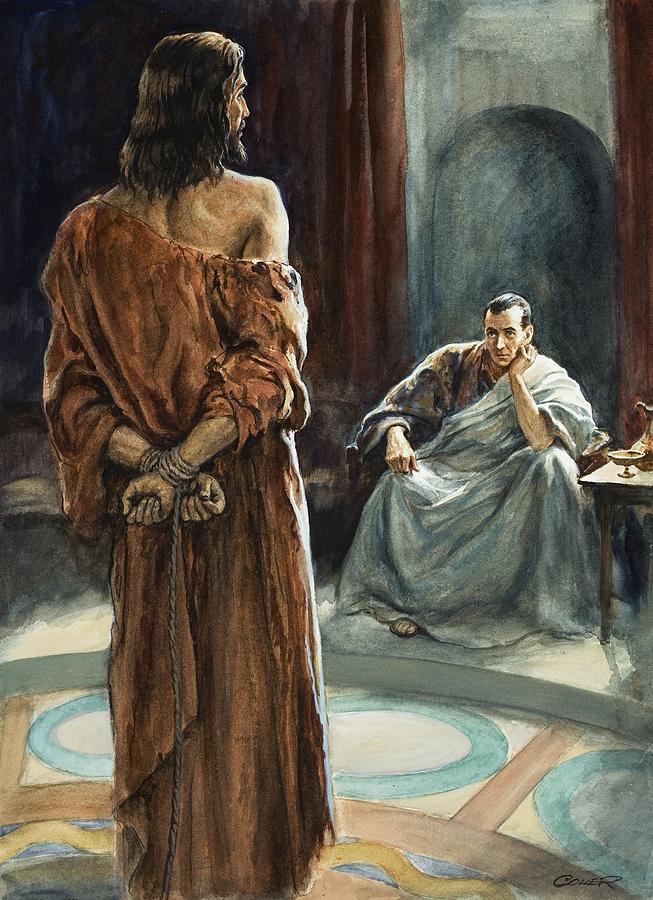 PILATE WAS WASTING HIS LAST OPPORTUNITY.
PILATE WAS WASTING HIS LAST OPPORTUNITY.
Mark 15:2-5 Then Pilate asked Him, “Are You the King of the Jews?” He answered and said to him, “It is as you say.” 3 And the chief priests accused Him of many things, but He answered nothing. 4 Then Pilate asked Him again, saying, “Do You answer nothing? See how many things they testify against You!”5 But Jesus still answered nothing, so that Pilate marveled. (NKJV)
There is a haunting ring to a verse from the ministry of Christ.
Luke 18:37 37 So they told him that Jesus of Nazareth was passing by. (NKJV)
How many opportunities did Pilate have? We don’t know, but this was his last with Jesus. Listen to Paul with a similar situation:
Acts 26:24-29 24 Now as he thus made his defense, Festus said with a loud voice, “Paul, you are beside yourself! Much learning is driving you mad!” 25 But he said, “I am not mad, most noble Festus, but speak the words of truth and reason. 26 “For the king, before whom I also speak freely, knows these things; for I am convinced that none of these things escapes his attention, since this thing was not done in a corner. 27 “King Agrippa, do you believe the prophets? I know that you do believe.” 28 Then Agrippa said to Paul, “You almost persuade me to become a Christian.” 29 And Paul said, “I would to God that not only you, but also all who hear me today, might become both almost and altogether such as I am, except for these chains.” (NKJV)
Almost. Almost Pilate heard. Almost. Listen to these words from a missionary pastor.[4]
One of the saddest words heard at the judgment will be the bitter cry of “almost.”
- To “almost” be a Christian is to be a child of Satan.
- To “almost” repent of your sins is to die in your sins.
- To “almost” be saved is to be eternally lost.
- To “almost” go to heaven is to be sent to hell.
“Almost cannot avail; almost is but to fail; sad, sad, that bitter wail — almost, but lost.”
Words & Music: Philip P. Bliss
 “He who is almost persuaded is almost saved, and to be almost saved is to be entirely lost,” were the words with which the Rev. Mr. Brundage ended one of his sermons. P. P. Bliss, who was in the audience, was much impressed with the thought, and immediately set about the composition of what proved to be one of his most popular songs.
“He who is almost persuaded is almost saved, and to be almost saved is to be entirely lost,” were the words with which the Rev. Mr. Brundage ended one of his sermons. P. P. Bliss, who was in the audience, was much impressed with the thought, and immediately set about the composition of what proved to be one of his most popular songs.
One of the most impressive occasions on which this hymn was sung was in the Agricultural Hall in London, in 1874, when Mr. Gladstone was present. At the close of his sermon Mr. Moody asked the congregation to bow their heads, while I sang “Almost Persuaded.” The stillness of death prevailed throughout the audience of over fifteen thousand, as souls were making their decisions for Christ.
“Almost persuaded” now to believe;
“Almost persuaded” Christ to receive;
Seems now some soul to say,
“Go, Spirit, go Thy way,
Some more convenient day
On Thee I’ll call.”
“Almost persuaded,” come, come today;
“Almost persuaded,” turn not away;
Jesus invites you here,
Angels are lingering near
Prayers rise from hearts so dear;
O wanderer, come!
“Almost persuaded,” harvest is past!
“Almost persuaded,” doom comes at last!
“Almost” cannot avail;
“Almost” is but to fail!
Sad, sad, that bitter wail—
“Almost,” but lost!
So if Mark 15:2-5 has POINT #2 PILATE WAS WASTING HIS LAST OPPORTUNITY. Then Mark 15:6-21 has POINT #3: PILATE WAS WANTING TO SATISFY THE WRONG CROWD.
Read Mark 15:6-21.
Pilate heard the powerful words of Christ. Paul reminds us:
1 Timothy 6:13-15 13 I urge you in the sight of God who gives life to all things, and before Christ Jesus who witnessed the good confession before Pontius Pilate, 14 that you keep this commandment without spot, blameless until our Lord Jesus Christ’s appearing, 15 which He will manifest in His own time, He who is the blessed and only Potentate, the King of kings and Lord of lords, (NKJV)
He did not heed them.
Jesus had found there were those who
John 12:42-4342 Nevertheless even among the rulers many believed in Him, but because of the Pharisees they did not confess Him, lest they should be put out of the synagogue; 43 for they loved the praise of men more than the praise of God. (NKJV)
Slides
Check Out All The Sermons In The Series
You can find all the sermons and short clips from this series, Scriptural Biographies – Peter here.
You can find all the sermons and short clips from this series, The Message Of Jesus here.
You can find all the sermons and short clips from this series, World of The Bible here.
Looking To Study The Bible Like Dr. Barnett?
Dr. Barnett has curated an Amazon page with a large collection of resources he uses in his study of God’s Word. You can check it out here.






